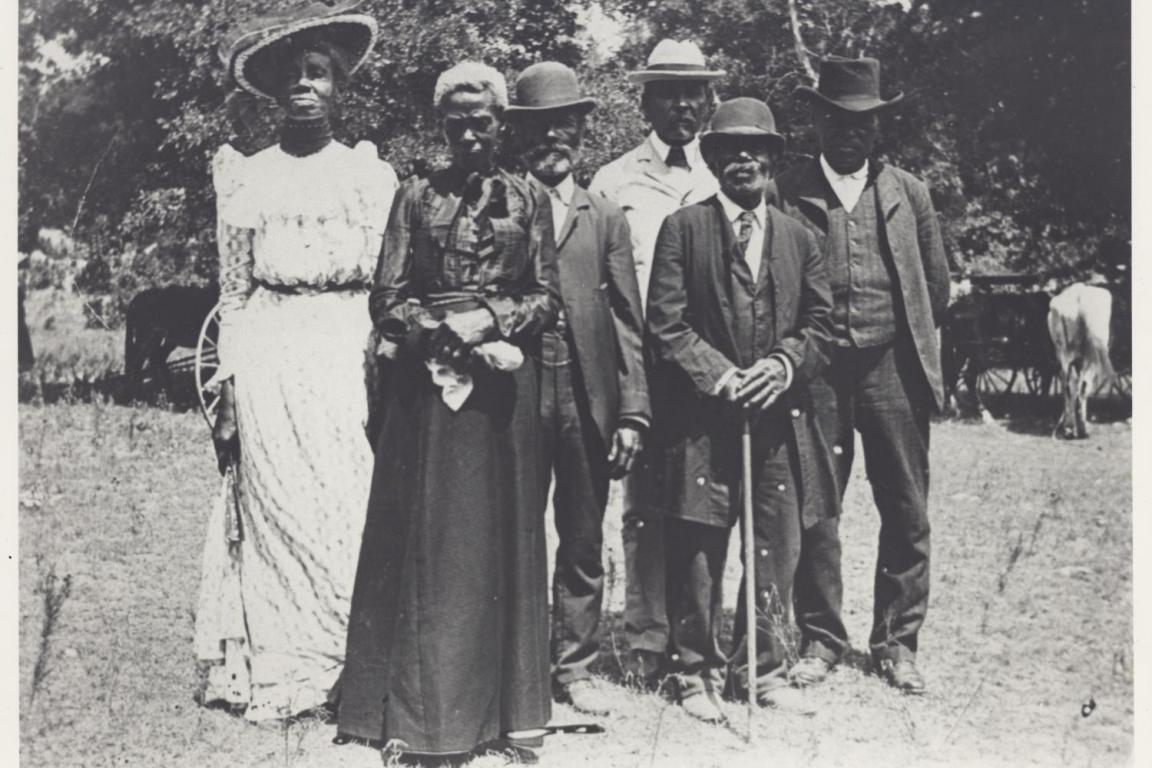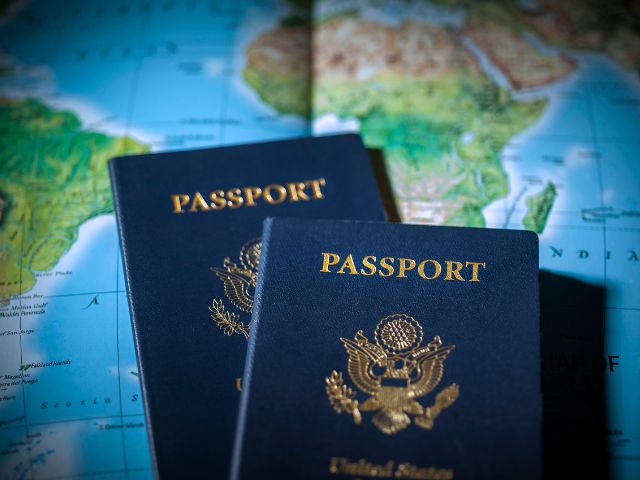- Travel Jobs
- Licensure Guide
- Exclusive Jobs

Let's Get Started
- Setting Up Your Stability Account
- National Travel Assignments
- The Best Paying Travel Nursing Specialties
- The Best Paying Travel Allied Specialties
Prepare for Your Assignment
- Housing Guides
- Maintaining Work Life Balance
- Stability Stories
- Contract Registered Nursing
- Contract Registered Nursing 101
- Nursing Certifications
- International Contract Registered Nursing Guide
- Nursing FAQs
- Working with a Travel Nurse Agency
- Nursing Compact States
- Contract Allied
- Your Guide To Allied Health Travel Jobs
- Our Company
The Guide to International Travel Nursing
- April 22, 2024
- Myah Christenson

International Travel Nursing
International travel nursing is a career choice for nurses that entails living in another country and working in direct patient care. International travel nurses collaborate with other medical professionals in hospitals, clinics, doctor’s offices, and other medical institutions, treating patients and promoting good healthcare in that area. The duration of placement can range from a few months to a year or more.

Responsibilities of An International Travel Nurse
- As needed, complete onboarding, orientation, and training at a new location.
- Caring for a diverse patient population, including individuals living in rural areas, underprivileged communities, areas affected by complicated chronic illnesses, and post-disaster zones.
- An international travel nurse collaborates with doctors, specialists, other nurses, and other medical personnel to treat patients.
- Taking vital signs, going through medical histories, and keeping track of symptoms are all part of the examination process of international travel nurses.
- Taking care of wounds and dressings.
- Giving medications and applying vaccines.
- Assisting patients in recovery with eating, bathing, and other self-care tasks.
- Creating, managing, or updating patient records systems.
- Educating patient populations on specific health conditions and overall wellness.
- Maintaining a safe and clean treatment environment.
High Demand for Travel Allied HCPs
Benefits of international travel nursing.
Here are some of the many benefits you can expect from the international travel nursing career
More Diverse Nursing Experience
As an international travel nurse, you will be exposed to a wide range of challenges and unique scenarios, allowing you to become a more successful nurse. You can broaden your horizons by experiencing with:
You may treat patients of many races and ethnicities, socioeconomic groups, and religions. Having experience treating people from various backgrounds might help you become more empathic and communicative.
Because several countries have more serious rates of certain diseases and illnesses, gaining hands-on experience with conditions you wouldn’t ordinarily treat in the United States might help you prepare for more challenging patients wherever you work.
Because best practices differ by country, practitioner, and facility, you may be exposed to novel techniques of treating individuals and specific illnesses that you haven’t tried or are unfamiliar with. This chance will allow you to enhance your nursing expertise and patient-care approach.
International travel nursing offers a variety of flexible alternatives, including time off between assignments, the length of your placements, the distance you’re willing to go, and the places you’d like to work in. This experience gives you more freedom than traditional nursing jobs, which require you to work full-time and permanently.
You could work at a large or small hospital, in a wealthy or impoverished neighborhood, in a clinic for specialized patient populations, or in various other settings. Having expertise in multiple fields improves your adaptability while broadening your nursing practice.
Expanding Your Network
When you work in a new patient care setting, you get to work with new practitioners from whom you can learn. As an international travel nurse, you will be performing at different institutions and increasing your network every few months, years, or decades. At this rate, you can quickly establish a global network of medical experts who can attest to your treatment abilities, dedication, and professionalism, as well as serve as a resource for finding future patient care employment.
Improved Communication Skills
Living in another country may require you to improve your language abilities. Speaking, writing, and listening in another language are necessary for working as a nurse in another country. Being bilingual is crucial as a nurse since it allows you to speak with and treat a broader range of patients.
You increase your communication skills by acquiring new ones utilized in different nations and learning or strengthening skills in another language. Some countries, for example, use nonverbal cues differently from the United States. In instances like these, your ability to read body language, adapt, and improvise improves as well.
Higher Cultural Awareness
When you travel and work in different parts of the world, you can broaden your cultural understanding and respect. These experiences can make you a more compassionate person and nurse. These qualities can make you a better candidate for future nursing positions, especially ones with leadership responsibilities and at institutions with a diverse patient population.
Potentially Higher Benefits and Compensation
With international travel nursing, you get higher benefits and compensation, which may comprise the following items, depending on the organization you are put through and where you are placed:
- An hourly rate of pay.
- Lodgings stipends or furnished housing provided.
- Compensation for travel to and from the destination.
- Stipend for food and recreation.
- Medical, vision, and dental insurance are all available.
- Paid vacation.
- Reimbursement for training and licensing.
- A bonus after a project.
Average Salary of an International Travel Nurse
Travel nurses might earn up to $109,185 per year on average. On the other hand, earning potential varies greatly depending on the country, location, and facility in which you are working. Salary is also influenced by your educational background, years of experience, applicable certifications, and nursing specialty.
How To Become An International Travel Nurse
Becoming an international travel nurse is a journey that starts with the following:
Certifications and Credentials Needed
You must have a license to demonstrate your skill in patient care procedures and ethics to qualify for any nursing position. The qualifications for licensing vary per state and country, but the majority of them include:
- A bachelor’s degree in nursing from a respected program or a diploma from a training program for licensed practical nurses (LPNs).
- Completion of a specific number of clinical hours involving direct patient care.
- Passing the National Council Licensure Examination–Registered Nurse (NCLEX-RN) or an equivalent LPN examination.
- Continuing education credits. Required to keep your license current.
- Proof of licensing
Consider A Specialty
A specialty certification may qualify you for positions in countries or facilities where nurses with unique abilities and experience are needed to address specific diseases. Specialization might boost your earning potential and increase your chances of landing a leadership position.
The following are some of the specialties in which you might consider earning an advanced degree or certification:
- Nursing in a surgical setting
- Anesthesia for Intensive Care Units
- Neonatal care
- Intensive treatment
- Delivery and labor
- Hospital emergency room
When applying for international travel nursing jobs, make sure to include your advanced degree, qualification, or experience on your resume.
Join a Travel Nursing Organization
Consider joining a group such as the National Association of Travel Healthcare Organizations to receive access to travel nursing placement agencies, open travel nursing positions abroad, training opportunities, and other helpful information.
Try Volunteering Abroad
Short-term travel nursing positions are available in the United States and abroad that allow you to donate your nursing expertise in facilities or regions where healthcare experts are in high demand, such as post-disaster zones. While you won’t be paid, seeking these short-term options can help you determine if travel nursing is suitable for you before committing to a longer-term commitment.
Volunteer travel nursing can help you get into an international nursing program by demonstrating prior travel nursing experience and an ability to adapt. These experiences can also help you improve your resume for local nursing jobs.
Meet The Country’s Requirements
You may need to get additional documentation to meet the country’s criteria in which you wish to work in addition to meeting US standards. You can work with the agency to handle this process, or you can look into the requirements of the country’s healthcare regulatory body if you’re applying on your own.
You may be required to meet the following requirements:
- Supplemental Education You will never run out of things to learn, whether it is a new certification or the constant improvement and practice in your area. Supplemental education will make the interview process more accessible, and you will be a great candidate for international travel nursing.
- Licensure In That Country Make sure to have all the paperwork ready so you won’t have to face any problem regarding the licensure in the country you are traveling to work.
- Undergo Additional Training Constant training is needed, and it will never be too much. Train in the new facility or familiarize yourself with the place you’re traveling, so you understand the basics and even train yourself for specific conditions.
- Getting Vaccinated Passing a physical and getting vaccinations is vital. Make sure you have all your vaccines so you can be protected.
5 Tips For International Travel Nurses
1. travel with a partner.
No matter the company —a fellow nurse, your significant other, a spouse— traveling with a partner that can be there for you is an irreplaceable privilege, so if you have the chance of doing so, it is highly recommended that you consider it.
2. Arrive Before Your Assignment To Get Settled In
While travel nursing assignments in the US typically last between eight and 26 weeks, international nursing jobs are often longer, so it would be great if you could prepare yourself calmly and with time. Arrive before your assignment and see how everything works.
3. Learn The Language
Of course, knowing at least the basics will help you greatly while working as an international nurse. You must communicate as well as possible to help patients in their treatment process.
4. Pack Lightly
Packing lightly might be one of the hardest things to do, but it is needed. Try to pack as lightly as you can so you can travel comfortably and without much stress.
5. Request A Tour of the Medical Facility
Before starting your assignment, request a tour of the facilities, more so if you didn’t have the time to gather enough information. Getting to know the medical facility where you’re going to work is vital and will help you immensely.
Travel Nurses Abroad
Working as an international traveling nurse lets you work in some of the most prominent facilities in the world, improve your clinical and professional capabilities, decide where you want to work and when, and earn competitive compensation with excellent benefits. International Traveling as a nurse also offers free or subsidized private housing, the chance of meeting new people, and the possibility of forming lasting friendships. You can even bring your spouse, family pet, or a friend with you on the trip, so sleep on it and choose the best destination, one that’s going to fit your goals.
Travel nursing jobs exist in a variety of locations around the world. Australia, New Zealand, China, and the Middle East have the greatest need for U.S. nurses. Rapid response nurses who can provide critical care in the aftermath of natural disasters and areas prone to high disease rates may be in high demand in places prone to these kinds of disasters.
It’s worth noting, though, that finding an agency or assignment that will send you to a nation where you don’t speak the language is uncommon. Before you may be considered for a nursing position in a foreign country, you must have a basic understanding of the local language.
Are you looking to start a new journey as an international travel nurse? We hope this introductory guide will help you take the leap and apply for nursing abroad. Stability Healthcare has the perfect job for you! Let us be your open door.
You should consider participating in an international travel nursing program if you’re a nurse with cultural interest and want to take the next step in your nursing career. By being an international travel nurse, you can travel, work with seasoned medical professionals from all over the globe, and expand your professional network while honing your patient-care abilities and earning a vast range of expertise to add to your résumé. Knowing what foreign travel nursing is, what it requires, and how it might benefit you can help you decide if it’s the appropriate step for your nursing career.
In this introductory guide, we’ll go through the fundamentals of international travel nursing and how to locate one, so you can make a logical decision.
What Is International Travel Nursing?
International travel nursing is a career choice for nurses that entails living in another country and working in direct patient care. International travel nurses collaborate with other medical professionals in hospitals, clinics, doctor’s offices, and other medical institutions, treating patients and promoting good healthcare in that area. The duration of placement can range from a few months to a year or more compared to domestic travel nursing contracts.

International travel nurses often have the following responsibilities. These may vary depending on the region and facility in which they work:
Because of the global nursing shortage, travel nurses are constantly needed. Also in the event of a disease outbreak or a natural disaster in a country, international travel nursing can greatly help the responding local health workforce.
For various reasons—including the difficulties of the job and the vital necessity for them in hospitals—travel nurse salaries are higher than permanent nurses, and they get offered excellent health insurance. In addition, they are paid an hourly, non-taxable stipend to cover their travel and living expenses, making them exceptionally well-compensated nurses.
- Patients: You may treat patients of many races and ethnicities, socioeconomic groups, and religions. Having experience treating people from various backgrounds might help you become more empathic and communicative.
- Conditions and Illnesses: Because several countries have more serious rates of certain diseases and illnesses, gaining hands-on experience with conditions you wouldn’t ordinarily treat in the United States might help you prepare for more challenging patients wherever you work.
- Medical Techniques: Because best practices differ by country, practitioner, and facility, you may be exposed to novel techniques of treating individuals and specific illnesses that you haven’t tried or are unfamiliar with. This chance will allow you to enhance your nursing expertise and patient-care approach.
- Freedom: International travel nursing offers a variety of flexible alternatives, including time off between assignments, the length of your placements, the distance you’re willing to go, and the places you’d like to work in. This experience gives you more freedom than traditional nursing jobs, which require you to work full-time and permanently. You could work at a large or small hospital, in a wealthy or impoverished neighborhood, in a clinic for specialized patient populations, or in various other settings. Having expertise in multiple fields improves your adaptability while broadening your nursing practice and skill set.
When you travel and work in different parts of the world, you can broaden your cultural understanding and respect. These valuable experiences can make you a more compassionate person and nurse. These qualities can make you a better candidate for future nursing positions, especially ones with leadership responsibilities and at institutions with a diverse patient population.
With international travel nursing, you get higher benefits and compensation packages, which may comprise the following items, depending on the organization you are put through and where you are placed:
- Lodgings or housing stipends or furnished housing provided.
- Medical, vision and dental insurance are all available.
- A bonus after a project and additional benefits .
Becoming a travel nurse for an international assignment is a journey that starts with the following:
You must have a nursing license to demonstrate your skill in patient care procedures and ethics to qualify for any nursing position. The qualifications for licensing vary from country to country , but the majority of them include:
- Passing the National Council Licensure Examination–Registered Nurse (NCLEX-RN) or an equivalent LPN certification exam.
- Continuing education credits. Required to keep your nursing license current.
A specialty certification may qualify you for international travel nursing positions in countries or facilities where nurses with unique abilities and experience are needed to address specific diseases. Specialization might boost your earning potential and increase your chances of landing a leadership position.
Short-term travel nursing positions are available in the United States and abroad that allow you to donate your nursing expertise in facilities or regions where healthcare experts are in high demand or where there are nursing shortages, such as post-disaster zones. While you won’t be paid, seeking these short-term options can help you determine if travel nursing is suitable for you before committing to a longer-term commitment.
On top of your current certifications and clinical experience, you may need to get additional documentation to meet the country’s criteria in which you wish to work in addition to meeting US standards. You can work with the travel nurse agency to handle this process, or you can look into the requirements of the country’s healthcare regulatory body if you’re applying on your own.
- Supplemental Education You will never run out of things to learn, whether it is a new certification or the constant improvement and practice in your area. Supplemental education or additional certifications will make the interview process more accessible, and you will be a great candidate for international travel nursing.
- Licensure In That Country Make sure to have all the paperwork ready, so you won’t have to face any problem regarding the licensure in the country you are traveling to work.
- Undergo Additional Training Constant training is needed, and it will never be too much. Train in the new facility or familiarize yourself with the place traveling to so yo u understand the basics and even train yourself for specific conditions.
No matter the company —a fellow nurse, your significant other, spouse— traveling with a partner that can be there for you is an irreplaceable privilege, so if you have the chance of doing so, it is highly recommended that you consider it.
Of course, knowing at least the basics will help you greatly while working as an international nurse. You must communicate as well as possible to help patients in their treatment process. While it’s likely you’ll be sent to an English-speaking country if that’s your only language or a country where English is commonly spoken, the point of working abroad, after all, is knowing new things. Including the language.
Working as an international traveling nurse lets you work in some of the most prominent facilities in the world, improve your clinical and professional capabilities, decide where you want to work and when, and earn competitive compensation with excellent benefits. International Traveling as a nurse also offers free or subsidized private housing, paid travel expenses, the chance of meeting new people, and the possibility of forming lasting friendships. You can even bring your spouse, family pet, or a friend with you on the trip, so sleep on it and choose the best destination, one that’s going to fit your goals.
Travel nursing jobs exist in a variety of locations around the world. Australia, New Zealand, China, and the Middle East have the greatest need for U.S. nurses, but European countries are an option as well and are good opportunities for nurses to learn different but advanced practices. Rapid response nurses who can provide critical care in the aftermath of natural disasters and areas prone to high disease rates may be in high demand in places prone to these kinds of disasters.
It’s worth noting, though, that finding a travel nursing agency or assignment that will send you to a nation where you don’t speak the language is uncommon. Before you may be considered for a nursing position in a foreign country, you must have a basic understanding of the local language.
- Patients You may treat patients of many races and ethnicities, socioeconomic groups, and religions. Having experience treating people from various backgrounds might help you become more empathic and communicative.
- Conditions and Illnesses Because several countries have more serious rates of certain diseases and illnesses, gaining hands-on experience with conditions you wouldn’t ordinarily treat in the United States might help you prepare for more challenging patients wherever you work.
- Medical Techniques Because best practices differ by country, practitioner, and facility, you may be exposed to novel techniques of treating individuals and specific illnesses that you haven’t tried or are unfamiliar with. This chance will allow you to enhance your nursing expertise and patient-care approach.
- Freedom International travel nursing offers a variety of flexible alternatives, including time off between assignments, the length of your placements, the distance you’re willing to go, and the places you’d like to work in. This experience gives you more freedom than traditional nursing jobs, which require you to work full-time and permanently. You could work at a large or small hospital, in a wealthy or impoverished neighborhood, in a clinic for specialized patient populations, or in various other settings. Having expertise in multiple fields improves your adaptability while broadening your nursing practice and skill set.
Related Posts
- July 10, 2024
- by Zach Smith

- June 20, 2024

- May 29, 2024
- by Leslie Catalano

Earned the Joint Commission Gold Seal of Approval.
Explore Jobs
- Salary Guide
- Career Building
- Life & Environment
- DAISY Award
- Managed Services Partner
- Careers – Clinician
- Careers – Corporate
- [email protected]
- 855-742-4767
- Cookie Policy
- Privacy Policy
- Terms & Conditions
How to Become an International Travel Nurse

Travel nursing provides opportunities to experience diverse clinical settings, explore new locations, and earn competitive salaries. When speaking of travel nursing, many nurses think of domestic travel nursing, working within the United States moving from one state to another. Conversely, there’s international travel nursing and opportunities to work abroad in various countries.
Becoming an international travel nurse is a rewarding and exciting career path that offers the opportunity to combine nursing with exploration, cultural immersion and professional growth. International travel nurses work in various healthcare settings around the world, helping to fill critical staffing gaps and gaining valuable experiences. Here’s a comprehensive guide on how to become an international travel nurse:

Acquire the Necessary Education, Experience and Licensing
To embark on a career as an international travel nurse, you need to start with a strong educational foundation. Most countries and healthcare facilities prefer candidates with a Bachelor of Science in Nursing (BSN) degree. Ensure that your nursing program is accredited by the appropriate nursing board in your country.
After completing your nursing education, you'll need to become a registered nurse (RN). This typically involves passing the national licensing examination specific to your country, such as the NCLEX-RN in the United States.
Gain clinical experience as a staff nurse in your home country. Most international travel nursing positions require at least one to two years of experience, although some countries may have different requirements.
Research Destinations
Decide on the international destinations where you'd like to work as a travel nurse. Consider factors like language, culture, healthcare system, scope of practice and personal preferences.
Research the specific licensing and credentialing requirements for each destination. Each country may have different procedures for foreign-trained nurses to obtain licensure.
Set realistic salary expectations. Countries such as Luxembourg, Denmark and Australia are known to pay competitive salaries to international travel nurses, as per the data from the Economic Research Institute. The exact rates may vary based on the nursing specialty and experience.
Choose a Reputable Travel Nursing Agency
To become an international travel nurse, it's advised to work with a travel nursing agency that specializes in international placements. These agencies have experience and expertise in navigating the complexities of international nursing assignments.
Do thorough research to find an agency that aligns with your career goals and provides the support and benefits you need. Ideally, you want agencies that have established relationships with healthcare facilities in your desired destinations.
Know your preferred travel nursing contract length. In contrast to domestic travel nursing contracts that usually range from 8 to 13 weeks, international contracts are often longer, usually lasting 12 to 24 months, due to the additional time and effort required for international placements
Obtain the Necessary Credentials
Secure the required nursing licenses and certifications for the country you wish to work in. This may involve passing the host country's nursing board examination or fulfilling specific language proficiency requirements.
Ensure that your nursing credentials are up to date and in good standing in your home country, such as your RN license.
Some countries may require you to pass additional examinations, like the IELTS or TOEFL, to demonstrate proficiency in the local language or English, especially if you are a non-native English speaker.
Prepare the Documentation
Compile your nursing credentials, transcripts, licenses, certifications and reference letters. Ensure that all your documents are properly notarized and authenticated.
Some countries may require a criminal background check as part of the application process, so be prepared to provide those documents.
Work on Your Resume
Craft a professional resume that highlights your nursing education, experience, and any relevant certifications or specialties.
Include any international nursing experiences or language proficiency to showcase your readiness for an international assignment.
Apply for Positions
Work with your chosen travel nursing agency to identify and apply for international travel nursing positions in your desired destinations. The agency will assist you with the application process, matching you with healthcare facilities and ensuring that you meet all the necessary requirements.
Be prepared for interviews, either in person or virtually, as part of the selection process.
Passport and Visa
Ensure that your passport is valid for the duration of your planned assignment. If necessary, you may need to renew it.
Work with your travel nursing agency and the host country's embassy or consulate to secure the appropriate work visa or permit. Visa requirements vary by country, so be sure to follow the specific guidelines and timelines.
Cultural and Language Preparation
Familiarize yourself with the culture, healthcare system, and language of your destination. Understanding the local customs, medical terminology, and communication norms will help you adapt more easily.
Consider taking cultural competence courses or language classes if necessary.
Packing and Logistics
Plan and pack for your international assignment, taking into account the specific requirements and climate of your destination. Check the baggage allowance with your travel nursing agency and the airline.
Make arrangements for housing and transportation upon arrival in the host country. Some agencies provide assistance with these logistics.
Health and Safety Preparations
Ensure that you are up to date with your vaccinations and have access to medical insurance that covers international travel.
Familiarize yourself with the healthcare resources available in your destination, including any healthcare facilities recommended by your agency.
Cultural Adaptation
Upon arrival, be open to immersing yourself in the local culture. Building relationships with colleagues and patients can help you adapt more quickly.
Be respectful of cultural differences and embrace the opportunity to learn and grow from your international experience.
Professional Growth
Take advantage of the opportunity to learn new nursing practices, gain exposure to diverse patient populations, and enhance your clinical skills. International travel nursing can be a valuable experience for your professional development.
Legal Compliance
Abide by the laws and regulations of the host country. Be aware of the scope of practice, ethical standards, and professional responsibilities that apply in your destination.
Keep your travel nursing agency informed of your progress and any issues you encounter during your assignment.
Completing Assignments
Becoming an international travel nurse involves a significant amount of preparation and documentation, but the rewards can be truly transformative. you'll have the chance to expand your nursing skills, experience new cultures, and make a positive impact on healthcare systems worldwide. by following these steps and working with a reputable travel nursing agency, you can successfully pursue a fulfilling international travel nursing career..
1. How to Become an International Travel Nurse (NurseJournal.org) 2. International Travel Nursing: What To Know Before Going Abroad (AllNursingSchools.com)

- Universities

Steps to Become an International Travel Nurse
Becoming an international travel nurse allows you to see the world while making a difference in healthcare abroad. As a nurse with a passion for travel and cross-cultural care, you can gain invaluable experience as you work in hospitals and clinics worldwide. This guide covers everything you need to know to launch your global nursing career.
In this Article:
Earn a Nursing Degree
The first step to becoming a travel nurse is completing either an Associate’s Degree in Nursing (ADN) or Bachelor of Science in Nursing (BSN) at an accredited nursing program. While ADN programs focus specifically on nursing curriculum, BSN programs incorporate more liberal arts and leadership training.
Many international recruiters prefer candidates with a BSN, which signals advanced clinical knowledge and care management skills. However, talented ADN nurses can still find placements if they have specialized experience.
Pass the NCLEX-RN Exam
After earning your nursing degree, you must pass the National Council Licensure Examination (NCLEX-RN) to receive your Registered Nurse license. The NCLEX-RN tests your competency in patient care, pharmacology, prioritization, delegation, and other essential nursing practices. With diligent studying and test prep, you can pass the NCLEX-RN and take the next step towards international travel nursing.
Gain Clinical Experience
Most international recruiters require at least one year of bedside experience for travel nurse placements. Working as a staff nurse builds your clinical skills, time management abilities, and confidence communicating with patients and providers.
Consider specializing in a high-demand area like ICU, ER, labour and delivery, or OR nursing. If possible, obtain 2-3 years of experience at major medical centers that serve diverse patient populations. This shows your adaptability and readiness for overseas assignments.
Research Requirements for Desired Locations
Each country has unique visa, licensing, and healthcare requirements for international nurses. Research these early so you can properly prepare for your destination. For example, some countries require nurses to demonstrate language proficiency or pass additional exams to practice.
Others simplify the process through mutual recognition agreements with the United States. Identifying prerequisites well in advance prevents delays in clearing credentials.

Apply for a Passport and Visa
Allow several months to obtain your initial passport if you don’t already have one. Most countries require at least six months of validity remaining on your passport at the time of entry.
Additionally, research visa options like temporary work visas and working holiday visas. Your recruiter can advise you on the best visa strategy, but you must submit the application yourself. Having a valid passport and work visa in hand makes clearing immigration and starting your assignment abroad much smoother.
Get Vaccinated
Meet with a travel medicine provider to receive recommended vaccinations based on your destination. For example, nurses traveling to Sub-Saharan Africa often receive yellow fever, typhoid, hepatitis A, hepatitis B, meningitis, and rabies vaccinations.
Some countries even require proof of certain immunizations before entering the country or starting work. Getting vaccinated early on demonstrates preparedness for international travel nursing.
Work with a Staffing Agency
Partnering with an established travel nurse staffing agency simplifies the job search and hiring process when working abroad. Agencies have connections at hospitals worldwide, allowing you to see all available openings that match your skills and interests.
Reputable recruiters also handle credentialing, licensing, accommodations, travel, and salary negotiations on your behalf. They want to ensure you have an incredible experience overseas, Vet several agencies to find one that specializes in international placements and offers stellar customer service. Ask about destinations they staff, overseas hiring trends, and reviews from past travel nurses.
Complete a Domestic Travel Assignment
If this is your first time working as a travel nurse, consider completing a 13-week domestic contract before going abroad. Travel assignments test your flexibility and adaptability to new environments and processes.
Domestic contracts help build these skills while keeping you closer to home during your first assignment. Once you gain confidence as a traveler, look into overseas opportunities.
Prepare Financially
International travel nurses earn lucrative compensation packages, including stipends for housing, meals, and incidentals. However, it takes 1-2 pay cycles to receive your full reimbursements.
Prepare for initial expenses by saving enough to cover your first month’s housing, transportation, food, and other living necessities. This acts as a buffer until you start receiving your full salary and stipends.

Pack Essentials in Your Carry-On Bag
Lost luggage could delay your overseas assignment, so pack a few essentials in your carry-on bag. This includes an extra set of scrubs, toiletries, medications, phone charger, passport, visa, cash in the local currency, and copy of your contract.
Having these items with you ensures you can report to your unit as scheduled, even if your checked bags get misrouted. As the saying goes, “prepare for the worst and hope for the best!”
Qualities of a Successful International Travel Nurse
International travel nursing brings immense rewards, but also unique challenges. Nurses who thrive overseas exhibit:
Cultural Sensitivity: You care for patients from diverse backgrounds and respect cultural differences relating to healthcare. This creates trust and rapport with patients.
Adaptability: From advanced medical equipment to paper charting, you flexibly adjust your nursing practice to meet the facility’s needs and protocols
Collaboration: You build positive relationships with local staff to deliver coordinated care, learning from one another.
Problem-Solving: When issues arise with credentials, housing, or transportation, you remain solution-focused to resolve matters quickly.
Autonomy: You work independently and proactively manage your assignments while away from your usual support systems.
Stress Resilience: Facing heavy patient loads and language barriers, you actively practice self-care to prevent burnout. Cultivating these qualities helps you provide excellent nursing care and have a great personal experience overseas!
Pros and Cons of International Travel Nursing
If exploring the world as a nurse appeals to you, weigh the unique advantages and challenges of this path to make an informed career decision.
- Higher Salaries: International contracts offer salaries competitive with U.S. rates, but with lower tax rates in certain countries. Housing and cost-of-living stipends also bolster earnings.
- Travel Opportunities: Scheduling gaps between contracts allows adventures to remote destinations you might not visit otherwise.
- Culture Immersion: Total immersion in a foreign culture accelerates learning about different groups’ values, customs, and beliefs.
- Resume Building: International experience showcases your flexibility, clinical skills, and ability to succeed in diverse settings.
- Recruitment Incentives: Agencies offer generous sign-on bonuses, reimbursement for interview-related travel costs, and referral bonuses.
- Professional Growth: You rapidly gain clinical expertise by working with international medical teams and learning new technologies.
- Homesickness: The excitement of travel is countered by missing your loved ones and familiar surroundings. Frequent digital check-ins help ease this.
- Language Barriers: You must quickly learn basic phrases in your host country’s language to converse with patients. Locals generally appreciate the effort.
- Contract Length: International contracts usually last 6-12 months. This extended time away doesn’t suit every nurse’s lifestyle.
- Cultural Adjustment: Adapting to different cultural norms, etiquette, and daily conveniences has a learning curve. Observe locals to build context.
- Limited Possessions: Frequent moves mean you can’t accumulate much “stuff.” A minimalist mindset helps.
- Credential Delays: Obtaining licenses and visas is complicated. Start this early with your recruiter’s guidance to prevent assignment delays.
While international travel nursing stretches your comfort zone, nurses who embrace the journey find it incredibly rewarding. With informed expectations about benefits and obstacles, you can decide if working abroad suits you.

Getting Started with International Travel Nursing
If you’re ready to take the leap into international nursing opportunities, follow these steps:
1. Research requirements for desired destination countries. Identify any prerequisites for licensure, visas, exams, vaccinations, etc.
2. Assess your qualifications and clinical experience . Do they fulfill the destination country’s expectations for international nurses? If not, gain additional experience before applying.
3. Enroll with a travel nursing agency specializing in international placements. Ask about open positions, credentialing support, salary/benefits, and previous nurses’ experiences.
4. Once offered an assignment, begin visa application process. This can take weeks to months depending on the country.
5. Obtain necessary vaccinations. Schedule appointments to complete your immunization series for your destination country.
6. Book travel and temporary housing. Your agency will guide you through booking details. Arrive at least several days before your start date.
7. Immerse yourself in the culture! Keep an open mind, regularly practice key phrases in the native language, and connect with fellow nurses and locals.
8. Consider extending or renewing your contract. Give yourself time to weigh the pros and cons before committing to another contract term. With the right mindset and preparation, you will change lives through nursing overseas. Bon voyage!
Frequently Asked Questions
What countries currently need international nurses.
Some of the most in-demand destinations for international nurses based on pressing healthcare needs include Australia, New Zealand, the United Arab Emirates, Qatar, Saudi Arabia, Singapore, the United Kingdom, and Caribbean islands like Jamaica and the Bahamas.
What clinical specialties are most in demand abroad?
Emergency, critical care, operating room, and labour and delivery nurses are recruited most aggressively for overseas contracts. Specialized nurses help lead quality improvement initiatives to elevate care standards.
What languages are useful for international nurses?
Fluency in English serves you well in top destinations for travel nurses like Australia, Singapore, India, the Philippines, and the Middle East. Learning Spanish opens additional opportunities throughout Central and South America.
Can I work as an international nurse as a new grad?
Most recruiters only accept nurses with at least 1-2 years of experience for overseas roles. New grads should gain experience locally then revisit international options later in their careers.
How much do international travel nurses earn?
Including salary, overtime, differentials, and stipends, nurses can earn $75,000-$150,000+ per year on international contracts. This exceeds typical staff nurse salaries back home.
Who pays for travel and housing as an international nurse?
Reputable agencies provide generous stipends covering housing, travel reimbursement to/from your assignment, meals, incidentals, and more. Read contracts closely so no surprise costs arise.
How to Pursue Your Nursing Courses Abroad: A Complete Guide
Staff Nurse (RGN) – UK
How to Become a Nurse in Dubai as an Internationally Trained Nurse
Leave a Reply Cancel reply
How to get free uk certificate of sponsorship and visa sponsorship with dependants in 2024, accelerated bsn programs: earn your rn in just 12 months (no prior nursing degree required), “comprehensive guide to studying nursing in the usa: admission requirements, costs, and scholarships”, explore top swiss companies offering visa sponsorship in 2024-2025: your gateway to a thriving career in switzerland’s high-quality, innovative landscape, top jobs in demand for us work visas | high demand jobs with salaries in usa | us work visa 2024, uk’s national health service launches global recruitment drive for 5,000 healthcare professionals, high-demand nursing careers: top 10 countries offering lucrative compensation packages, nhs uk launches international recruitment drive: visa sponsorship available for healthcare professionals, latest news, canada 2 year work permit 2024: complete guide to eligibility, documents & application process (step-by-step), cna and caregiver career path: step-by-step guide to securing healthcare jobs locally and internationally | expert advice, nigerian students’ ultimate guide to uk nursing degrees: top universities, admission requirements, and visa process.

How To Be A nurse in Switzerland for Non-EU Trained Nurses

UK Care Homes Offering Visa Sponsorship – A Guide for International...

Immigration Road Map For Nurse Aide Applicants -USA
Popular category.
- Universities 378
- Guidelines 267
- Winter tips 3
- Course Library
- Knowledge Base
- Nursing Blog
- Email Address Password Remember Me Reset password Login
International Travel Nursing: Nursing Specialties Breakdown
- Explore the exciting field of international travel nursing to help fill the 13 million nurse deficit worldwide.
- Discover how to get started as an international travel nurse, including the necessary documentation.
- Learn about international travel nursing salaries, and how these opportunities can be found.

Charmaine Robinson
MSN-Ed, BSN, RN

Travel nursing has become more popular in recent years. Travel nurses have the freedom to choose when and where they work, and can negotiate pay, schedules, and other contract details. While international travel nursing offers a unique and potentially exciting opportunity for career expansion, nurses should prepare adequately before taking the plunge.

What is International Travel Nursing?
International travel nursing is a specialty field of travel nursing in which nurses can work standard or crisis (disaster relief) assignments abroad. While local travel nursing assignments typically last a couple of months at a time, international travel nursing assignments can last up to several years.
International travel nursing may help to fill the global nurse shortage gap – an estimated deficit of 13 million nurses . International travel nursing is not a new concept. Countries have been sharing nurses for a while now.
Many nurses from English-speaking countries like the Philippines and Jamaica, have travelled internationally to the U.S. to assist with nursing shortages. China, the Middle East, New Zealand, and Australia all hire U.S. nurses to work abroad.
Should a nurse decide to pursue international travel nursing, there are several steps that should be taken to ensure a smooth and seamless transition.
How to Become an International Travel Nurse
Similar to local travel nursing, international travel nurses should have experience as a nurse already. The number of years required may vary per country. Some countries may require a specific nursing degree (like a BSN) or a specified number of nursing practice hours for qualification. Explore these additional requirements for international travel nurses.
Obtain a Passport and Work Visa
Passports are a basic requirement of international travel – whether for work or leisure. In order to travel to work as an international nurse, a visa is required. Nurses must be aware of which type of visa is required as there are varying types. For example in Australia , nurses can obtain different types of visas including occupational, independent, and temporary.
Obtain Licenses and Certifications
Depending on the country of work, nurses may have to take an additional nursing exam. For example in Australia , nurses are required to take two exams, the NCLEX (may qualify to bypass retesting) and the OSCE (Objective Structured Clinical Exam). In addition to licenses, nurses in certain specialties may have to obtain additional certifications.
Update Vaccinations and Physicals
Working in other countries may expose travel nurses to communicable diseases that are not as prevalent in the U.S. Therefore, international travel nurses may be required to receive additional vaccines. Nurses may also be required to pass special physicals as the physical demands of the job in other countries may differ from those in the U.S. For example, nurses who wish to work in Canada are required to obtain a medical exam by a practitioner designated by the country.
Ensure Language Proficiency
Language proficiency is imperative when working internationally. While many countries are English-speaking, many are not. Nurses who wish to travel internationally should ensure that they speak the language of the communities they will serve. Some countries may require a language proficiency test. For example, the United Kingdom requires an International English Language Testing Scheme (IELTS) exam.

International Travel Nurse Salary and Positions
International travel nurses can make a substantial amount of money, much more than that of a local travel nurse. International travel RNs make an average of $124,382 annually . Salaries can vary based on experience level, specialty, location, and living arrangement.
Landing international positions requires preparation, patience, and determination. Nurses who wish to work in this field may apply for positions through international travel nursing agencies or directly through the country’s nursing governing body. Here are three ways to get started.
Nursing Regulatory Bodies
One of the best ways to find international nursing positions is to go directly to the source. Nurses who wish to work abroad can find out the exact requirements necessary by visiting the website of the country’s nursing regulatory body. A simple online search is all it takes. Here are a few international resources .
- Australia: Nursing and Midwifery Board of Australia
- Canada: National Nursing Assessment Service
- New Zealand: Nursing Council of New Zealand
- South Africa: South African Nursing Council
- United Kingdom: The Nursing and Midwifery Council
The U.S. Department of Defense
A great resource for finding international nursing jobs is the Department of Defense (DoD). Currently, there are no international positions open for registered nurses. However, the DoD hires nurse practitioners (NPs) in the role of “foreign service medical providers.”
Job benefits include life and medical insurance, family leave, sick and holiday pay, retirement, and educational training and development. Annual salary ranges from $105,654 to $150,127. NPs are assigned to overseas missions that can last up to three years. Duties include performing medical exams, prescribing treatments, providing emergency care, acting as a diplomat, and maintaining involvement with the U.S. embassy.
The Peace Corps
The Peace Corps , known for its global volunteer services, is a great resource for nurses who wish to explore opportunities abroad prior to stepping into the international nurse role. Although there are no travel nursing positions available, the organization has many volunteer openings for community health educators in Africa and South America.
Volunteers work alongside nurses in the community by helping with trainings, small group meetings, mentoring, and community mobilization. Positions require a bachelor’s degree and five years of professional experience. Preferred qualifications include nursing experience, interest in public health, and willingness to learn the local language.

The Bottom Line
Nurses who wish to explore the world of international travel nursing should start researching now. The process of obtaining all required documents, tests, and vaccines can take months, even years.
Nurses who prefer to work through an international travel agency may benefit from joining a professional international travel nursing group (like American Travel Health Nurses Association) for support and agency recommendations. In these groups, international nurses can share their experiences managing cultural shock, securing housing, navigating varying health systems, and handling legalities and other affairs.
Overall, international travel nursing is a great way for nurses to explore and heal the world.
Love what you read? Share our insider knowledge and tips!

Advanced Practice Registered Nursing: What Does it Take?
by NCC News and Content Team | Aug 20, 2024 | Specialties
Specialties Advanced Practice Registered Nursing: What Does it Take? Learn about the nuances of advanced practice registered nursing. Explore the differences between an advanced practice registered nurse and a nurse practitioner. Discover which path to take when...

Telehealth Nurse: Exploring the Increasingly Popular Specialty
by NCC News and Content Team | Aug 6, 2024 | Specialties
Specialties Telehealth Nurse: Exploring the Increasingly Popular Specialty Becoming a telehealth nurse involves several steps, including licensure and specialized training. Work settings for a telehealth nurse range from telemedicine clinics to telephonic nursing...

Is Pediatric Nursing the Right Specialty For You?
by NCC News and Content Team | Jul 4, 2024 | Specialties
Specialties Is Pediatric Nursing the Right Specialty For You? If you love caring for children and babies and have good communication skills, pediatric nursing might be the career for you. Salary estimates for the specialty range from $38,000 to $89,000 annually....
- 801.816.1444
BLOG Career Advice
Top 10 International Travel Nursing Locations
If you become a nurse , you’ll be able to work in a variety of work situations. Nurses can work in hospitals (obviously), but also in schools, military bases, or outpatient care facilities. You could also go abroad. If you want to be an international nurse, you have to make a decision: Do you want to be a nurse in a country where you’ll be able to live more or less comfortably, or do you want to go somewhere where your skills are desperately needed?
Here are 10 possible locations for a nurse abroad, five in the industrialized world and five that desperately need nurses. Keep in mind that each of these countries has different policies regarding work visas, as well as licensing issues related to working as a nurse.
Travel Nursing Abroad: 10 Best Places to Work
Haiti is perhaps the poorest country in the Western Hemisphere. Since its independence in 1804, it’s been comparatively isolated from the United States and European colonial powers. That isolation has contributed to long-standing impoverishment and political instability, neither of which is conducive to good healthcare infrastructure. The country still has not fully recovered from the effects of the 2010 earthquake, and Haiti presents a true challenge and opportunity to a nurse who wants to go abroad.
2. Paraguay
Thirty-five years of 20th century dictatorship stymied Paraguay’s development of a viable higher education system. Since the 1990s, Paraguay has adopted a more open political system, but it still doesn’t have the population of educated healthcare professionals necessary to serve its population of almost seven million.
Bolivia is one of the poorest countries in South America, and political instability throughout the 20th century has meant that the necessary infrastructure to supply quality healthcare hasn’t materialized.
4. Ethiopia
Ethiopia is one of the world’s oldest nation states and has a nurse-population ratio of 0.252 nurses per 1,000 people, according to the World Health Organization. It’s also one of the least connected countries in the world, with a low rate of cellphone adoption and internet use, much of which could be a challenge for healthcare personnel who are used to sending information with the speed of a click
5. The Dominican Republic
These last five countries are drawn from this list of countries in need of nurses. These are places where a nurse can go to effect significant change, and that’s not just because of health or sanitation issues. Internationally, nurse migration tends to mean that nurses from less-developed countries make their way to more developed ones, pursuing better jobs. The Dominican Republic, for example, has only 1.334 nurses per 1,000 people. That’s the result of a lot of variables, but in part it has to do with strong incentives for skilled Dominican residents to move to the United States.
Japan’s population is among the oldest in the world, with 27.87 percent of the people who live there over 65. The younger generation is dwarfed by an older, retired cohort whose demand for healthcare will probably be considerable, given that Japan also has one of the longest life expectancies in the world. The country’s demographic crisis means that it will, in all likelihood, have to import younger workers from abroad to keep everything functioning.
7. The European Union
If you’re lucky enough to get an EU visa, you’ll be able to work in an array of countries. Nations like France and Germany might be the obvious options, but you’ll also have access to smaller places like Cyprus, Latvia, and Malta. If you want to be an international traveler on a single visa, try to get into the EU.
8. Australia
Like the U.K. and Canada, Australia is accessible for American nurses because of a shared language. Getting a job there will give you access to one of the largest countries on Earth, one that comprises rainforests, deserts, sandy beaches, and dry wastelands. Traveling to Australia is a journey in and of itself, but the country that is also a continent offers plenty of travel within it when you get there.
9. The United Kingdom
Like Canada, the U.K. shares a language with the U.S., but not a healthcare system. If you can manage to get a visa to work in the U.K., you’ll likely find yourself part of the National Healthcare System, one of the largest healthcare providers in the industrialized world and one so important to Britain that there was a tribute to the NHS at the 2012 Olympics.
Canada is probably the most familiar option for an American nurse who wants to work abroad, but don’t assume that because of geographical proximity Canada is just like the United States. While much of the culture and language will be the same, Canada’s healthcare system is administered and run differently than the U.S.’s, and patient expectations about how healthcare works are very different.
- Career Advice
- Nursing Specialties
Related Articles
Highest Paying States for Travel Nurses
As a nursing graduate, the world is your oyster. Because of a national nursing shortage, the demand for nurses is...
How to Choose an Occupational Therapy Assistant School
If you're looking into Occupational Therapy Assistant (OTA) school, you’re starting down a meaningful and lucrative career pat. The U.S....
A Day in the Life of an Occupational Therapy Assistant
An Occupational Therapy Assistant’s Daily Schedule Before diving into any career, it’s important to know what a typical day on...
What is a Pediatric Occupational Therapy Assistant?
Occupational Therapy (OT) helps people of any age living with injuries and disabilities learn to perform daily activities. For children,...
Occupational Therapy vs Physical Therapy: What’s the Difference?
Occupational Therapy (OT) and Physical Therapy (PT) are frequently confused, so let’s set the record straight. The difference between OT...
6 Qualities of a Great Occupational Therapist Assistant
Occupational Therapy Assistant (OTA) careers have a great salary, excellent job outlook, and lots of growth opportunities. You’ll also go...
All of Your Questions About International Travel Nursing Jobs Answered Here
by Trusted Nurse Staffing | Mar 1, 2021 | News

Note: Trusted Nurse Staffing does not offer international travel nursing contracts
Is it possible to see the world while doing the job you love?
For those who love nursing and love travel, the answer is a resounding “yes” .
Travel nurse positions are not only available domestically but also internationally.
But before you jump on a plane to your desired destination and nursing assignment, you’ve got questions about:
- Where you can go
- How much you can make
- How to prepare
We’ll fill you in on all these details and more as you consider a travel nurse position abroad.
Table of Contents
Can travel nurses work internationally, where are international travel nurses needed the most, how much do international travel nurses make, what are the educational and licensing requirements for travel nursing jobs abroad, 10 questions to ask the agency before applying for international travel nursing agencies online, 5 tips for international travel nurses, not quite ready for international travel nursing find amazing domestic travel nurse positions with trusted nurse staffing.

Yes, international travel nursing opportunities are numerous and varied. Not only are there nursing shortages in the United States, but many countries across the world experience these same shortages.
These medical personnel shortages are especially common in countries with disease outbreaks or natural disasters.
RN international travel jobs not only allow you to experience other countries and cultures, but you’ll also be able to expand your nursing skills, learn new medical techniques, and further develop language and communication skills.
How Do I Become an International Travel Nurse?
Becoming a travel nurse internationally is much like becoming a travel nurse domestically. In addition to being a licensed nurse in the U.S., you may need special certifications to meet other requirements of the country you want to work in.
Each country is different in its specifications, so if international RN travel jobs intrigue you, spending some time researching the options and requirements will help you know what’s needed or what you may need to acquire before you apply for a position.
If you are new to travel nursing, we recommend taking at least one or two domestic assignments first before you commit to nursing overseas.
Getting some experience working in different facilities across the country will help you get your feet wet before you step into jobs in other countries that may come with extra stressors like:
- A new culture
- A new climat
- A new language
- Different techniques and facilities
Trusted Nurse Staffing has qualified and experienced recruiters with the know-how to connect you to your desired domestic assignment.
Not only that, Trusted Nurse Staffing will help you look for exciting assignments with job security and benefits while giving you the personal attention you’re looking for.
Click here to find out how to get started.

Since travel nurses are needed almost everywhere, international travel nursing jobs are available in countries across the world.
Some of the countries with the greatest need for travel nurses include:
- New Zealand
- The Middle East
This is just the tip of the iceberg, however. Many other countries are also in need.
The World Health Organization published a report entitled The State of the World’s Nursing 2020 which reported a “ global (nurse) shortfall of 5.9 trillion .”
This report listed areas with immense need like:
- South East Asia
- Latin America
No matter the location, working as a travel nurse internationally is certain to provide experience:
- With patients of different ages.
- In a variety of conditions.
- With a variety of diseases.
- In different types of hospitals — from low-income to state-of-the-art medical facilities.
What Nursing Specialties Are Needed Abroad?
Nursing specialties of all kinds are needed abroad, but the most sought after specialties include:
- Emergency room
- Operating room
- Medical/surgical
- Intensive care
- Pediatric care
- Cardiac care
- Labor and delivery
How Long Are International Travel Nurse Assignments?
Travel nurse assignments differ depending on location and assignment, but most international travel nurse assignments last for one to two years .
Some international travel nurse assignments may also come with time off between assignments. In places like the Middle East, it’s not uncommon to get an assignment where the facility covers the cost of the nurse’s travel home between the first and second year.
If you’re not quite ready to jump into a long-term assignment overseas, maybe a short-term volunteer assignment will help you get your feet wet.
Volunteer nursing positions are available through many non-profit organizations, and the duration of the assignments is much shorter — usually 3-6 weeks .
Of course, there is no payment for volunteer positions, but it may be a great way to experience an international assignment before you sign a longer-term contract.
Most international travel nurses make an hourly wage, but how much an international travel nurse makes may be dependent on several factors like:
- The location of the assignment
- The type of assignment
- The nurse’s qualifications or specialty certifications
Many overseas assignments pay less than the same job in the United States, but they may come with other benefits that offset the lower salary.
Some of these benefits may include things like:
- Housing and food stipends
- Paid time off
Another thing to remember is that the cost of living is lower in many other countries. When you consider the lower cost of living, the lower salary may be comparable to a nursing position in the States.
Taxes also can play a large role when considering the bottom line. Whether you will need to pay taxes or not depends on the country and the assignment. In places like the Middle East, it’s common to have tax-free assignments.
Along with many other details, international travel nurses will need to verify pay deduction and tax requirements with the agency they work with.
Which Countries Pay the Most for International Travel Nurses?
In general, the highest paying international travel nurse jobs are found in European countries.
The following European countries pay the highest travel nurse salaries:
- The Netherlands
Europe offers the highest paying jobs because of the way compensation packages may be structured, but other high paying jobs can be found in other places like:
- The Virgin Islands
The pay in many of these locations ranges from $22,000 to $125,000 per year. In addition, some of the jobs in these locations offer exemplary benefits in top-notch facilities.

Do International Travel Nursing Jobs Have the Same Benefits, Stipends, and Travel Allowances as Domestic Travel Nurse Jobs?
Of course, all of the specifics will vary depending on the agency, country, and assignment, but most international travel nurse assignments come with some sort of benefits package.
Going over all of the details with travel nursing abroad agencies is the only way to know the full extent of the benefits.
Many international travel nurse jobs come with similar benefits as those found in the U.S. like:
- Health insurance
- Paid licensing fees
- Travel to the assignment location
Time off between assignments may also be an attractive incentive, but it’s important to check the details. Caps may be set on time off, and these benefits can be lost if the time off is extended beyond the allotted time.
It’s extremely important for international travel nurses to understand exactly what is being offered in terms of benefits, stipends, and allowances. Getting everything in writing is a must.
If you want to compare international pay and benefits to those of domestic assignments, it would be worthwhile to take a look at Trusted Nurse Staffing.
Trusted Nurse Staffing offers top pay and benefits for domestic assignments.
Many travel nurse jobs are available abroad for LPNs, RNs, and APRNs .
Regardless of your level of training, international travel nurses may need to
- Have a degree from an accredited school.
- Be in good standing.
- Meet any of the country’s specific licensing requirements.
- Pass the NCLEX (National Council Licensure Examination).
- Pass any exams necessary for a specialty.
- Have one year of experience in a specialty area.
In addition to these educational and licensing requirements, there are several other travel specifications and documents that might be necessary, including:
- Work permit
- Sponsorship letters
- Birth certificate
- Immunization certificate
Lastly, language tests may be a requirement — even if you are traveling to an English-speaking country like Britain, Canada, or Australia.
Without a doubt, a travel nurse agency will give you a vast amount of information about international travel nursing on their website or in an initial interview. Thorough knowledge is key, so here are some important questions to ask the agency before you apply:
- Is travel health insurance part of the compensation package?
- Do you get paid vacation time and when?
- How often and in what currency will you be paid?
- Can you terminate your contract early if you’re not happy with the location?
- What locations do you serve?
- How is your pay package structured?
- Do you provide free housing or a housing stipend?
- Are there any signing incentives or end-of-assignment bonuses?
- How much time can I take off between assignments?
- Do you cover travel expenses to the travel location?

An assignment as an overseas travel nurse can be both rewarding and challenging . Stepping into a new culture, experiencing new food, missing family and friends, and starting a new job can all be formidable.
If you have never experienced travel nursing abroad, consider these tips as you prepare for your overseas assignment.
#1 The Buddy System
Traveling alone to a new country and culture can bring about loneliness and homesickness. Bringing a spouse or partner or asking a nursing friend to apply with you are great ways to combat these difficult emotions.
Bringing a pet may also be a possibilit y.
You will need to keep in mind that each country has its own regulations for bringing in animals . Permits and health evaluations may be necessary, and sometimes pets need to be quarantined for a period of time once they arrive in the country. All of this can be quite costly.
#2 Give Yourself Time to Settle In
Arrive a few weeks early so you can get accustomed to your new city.
You’ll want to use this time to:
- Get settled into your home
- Organize your transportation
- Figure out your route to your work location
- Get familiar with the city (find the grocery store, pharmacy, parks, etc.)
#3 Learn the Language
If you are considering a country where the first language is not English, it may be necessary to learn the native tongue.
Even if you find an assignment in one of these countries, and they don’t require you to speak the language, it would still be incredibly beneficial to be able to speak the language conversationally for everyday interactions.
#4 Pack Light
You don’t need to bring the kitchen sink.
When packing to head to your overseas assignment, bring as little as possible .
Big items like furniture and household items will most likely be provided for you, so all you’ll need to bring is clothing and personal belongings and maybe a special item to remind you of home.
#5 Request an Orientation of the Medical Facility
A final item to consider when planning on how to travel nurse abroad is to visit the medical facility where you’ll be working.
Rather than jumping in cold, request to have a tour of the facility/ward before your first day. Ask as many questions as you can about the expectations and daily responsibilities .
Maybe you aren’t quite ready to take the plunge and jump into an overseas assignment.
There are plenty of domestic travel nurse assignments available, and these types of assignments can be a fabulous way to prepare you for a longer assignment farther away.
And you’ll still have the opportunity to visit some areas of your own country that are new to you while you get the chance to use and develop your nursing skills.
Trusted Nurse Staffing offers:
- Choice of assignment
- Outstanding pay
- Excellent benefits
- Flexible contracts that range from 8 to 52 weeks.
With the personal attention of one of our recruiters, Trusted Nurse Staffing can help you find your dream job in your desired location.

Recent Posts
- How Much Money Can a Traveling Nurse Anesthetist Make? A CRNA Travel Nurse Salary Breakdown
- Beyond the Clinic: How To Become a Traveling Nurse Practitioner
- Travel Nursing and Student Loans: Repayment and Forgiveness Options
- Overcome New Travel Nurse Anxiety With These Helpful Tips
- How To Improve Leadership Skills in Nursing and Take Your Career to the Next Level
Career Advice > Professional Development > Career Paths > Is International Travel Nursing Right for You?
Is International Travel Nursing Right for You?
Search resource center.

Are you a nurse with a sense of adventure, looking to broaden your horizons and make a positive impact on healthcare on a global scale? International travel nursing offers a unique and rewarding career opportunity for registered nurses (RNs) to travel to different countries to work temporarily in healthcare facilities. But before you pack your bags and embark on this journey, it’s essential to consider if this career path is the right fit for you.
If you’re thinking of joining the ranks of international travel nurses, this article is for you. We’ll explore all the ins and outs of this exciting profession, covering how to get started, top destinations, salaries, and pros and cons.

What Is International Travel Nursing?
An international travel nurse is a healthcare professional who embarks on short-term assignments in healthcare facilities outside of their home country. Similar to domestic travel nurses , they may be hired on a contract basis by travel nursing agencies to fill urgent staffing needs in medical facilities.
International travel nursing agencies link nurses with global assignments tailored to their preferences and skills, as well as a facility’s needs. Alternatively, some nurses choose to seek jobs abroad independently by networking, applying directly to hospitals, or using online job platforms.
Where Do International Travel Nurses Work?
International travel nursing jobs can be found in various countries. Yet, certain destinations stand out for U.S. nurses. Here are some top picks to consider.
- New Zealand
- United Arab Emirates
- United Kingdom
Another way to work internationally as a nurse is to get employed in an organization that has international roles for nurses, such as:
- Centers for Disease Control and Prevention (CDC)
- International Health Organization (IHO)
- International Medical Corps (IMC)
- Nurses Beyond Borders (NBB)
- Pan American Health Organization (PAHO)
- World Health Organization (WHO)
How to Become an International Travel Nurse
Becoming an international travel nurse can be a rewarding career path. Here’s a step-by-step guide on how U.S. nurses can become international travel nurses:
1. Earn a Nursing Degree
The fastest way to become a nurse is to earn an associate degree in nursing (ADN). For a more comprehensive education, you can choose to pursue a bachelor of science in nursing (BSN) degree, which may be preferable for international work.
2. Obtain Nursing Licensure
To become an RN, you’ll need to pass the NCLEX-RN (National Council Licensure Examination for Registered Nurses) and submit all required documentation to your state’s board of nursing .
3. Gain Experience
Next, gain some solid nursing experience. You can choose to focus on one specialty or explore various fields to gain a diverse set of skills, preparing you to work in different healthcare settings. Some options include:
- Psychiatric
- Medical-surgical
Some nursing specialties might give you the opportunity to travel abroad right away, such as:
- Infection control nursing
- Military nursing
4. Get Certified
If you want to boost your credibility and upgrade your skill set, you can choose to pursue certification. Consider getting specialty certification if you plan to focus on a particular patient population. Another good option to consider is the Transcultural Nursing Certification (TNC), since you’ll be working with people with diverse cultural backgrounds .
5. Pick a Country
Keep in mind, international travel nursing requirements vary by country. Much like getting a license endorsement in another state, it can involve lots of paperwork. Here are some top global destinations and their requirements:
- Saudi Arabia
6. Research Agencies
There are several agencies that specialize in placing nurses in international assignments. Research and compare these agencies to find the right match for your goals. Look for agencies with a good reputation, transparent contract terms , and strong support services for their nurses, including helping out if you have any issues while traveling internationally.
The number of U.S.-based international travel nursing programs is limited, so it might be easier to find such an agency in the country you choose. Here are a few international travel nursing agencies to get you started with your research:
- Dynamic Health Staff , International
- Global Placement , International
- HCA Healthcare , Australia
- Helen Ziegler and Associates , Arabian Peninsula
- Horizon Health Network , Canada
- Medacs Global Group , United Kingdom
- Monarch , Germany
- Stafford Recruitment , New Zealand
7. Apply for a Visa and a Job
To work abroad, you’ll need to apply for both a job and a visa. Whether you’re applying through an agency or directly to a healthcare institution, you’ll need a solid travel nurse resume . Additionally, for the visa application, common documents requested include:
- Valid passport
- Nursing license
- Proof of certifications and qualifications
- Employment offer
- Medical examination
- Immunization record
- Background check
- Proof of language proficiency
- Visa application form
- Proof of financial means
The Pros and Cons of International Nursing
Being a nurse who travels internationally comes with its own set of unique challenges and rewards. Here are some pros and cons associated with this profession:
Pros of international nursing:
- Adventure and travel: You’ll get to travel, explore new places, and experience different lifestyles while earning a living.
- Professional growth: Working abroad offers chances to learn new medical techniques and develop nursing skills.
- Cultural immersion: Nurses can explore different cultures, customs, and healthcare practices, broadening their understanding of culturally congruent care .
- Good pay: International nurses often enjoy higher pay, tax benefits, housing allowances, and other perks.
- Personal development: Living and working abroad helps nurses grow personally and gain confidence and independence.
- Networking: Nurses can build a global network of professional contacts, opening doors for future opportunities.
Cons of international nursing:
- Licensing challenges: Getting licensed in foreign countries can be complex and time-consuming.
- Legal and ethical differences: Nurses working abroad may encounter differences in legal and ethical standards , as well as unfamiliar healthcare practices, which could be challenging.
- Language barrier: Communicating in foreign countries can be tough due to language differences, leading to stress.
- Cultural adjustment: Adapting to new cultures and healthcare systems can be stressful.
- Job security: Contracts are usually short term, which can lead to uncertainty about future assignments.
- Family separation: Being away from family can strain relationships and cause feelings of isolation.
International Travel Nursing Salary
The typical travel nursing salary in the U.S. is about $100,700 per year. It’s important to understand that when traveling internationally, your international nurse salary will largely depend on which country you are visiting. Here are some examples:
- Australia: $123,402 (AUD) per year
- Canada: $106,104 (CAD) per year
- New Zealand: $107,563 (NZD) per year
- Germany: €68,395 (EUR) per year
- United Arab Emirates: 227,592 (AED) per year
- United Kingdom: £56,340 (GBP) per year
International Travel Nurse: Frequently Asked Questions
Can travel nurses work internationally.
Yes, travel nurses can work internationally, but the process typically involves additional steps, such as applying for a nursing license in the country of destination and obtaining the necessary work visa or permits.
How long are international assignments?
International assignments can vary in duration, but they may range from a few weeks to several months. However, due to the tedious process of visa application and obtaining a license in a new country, these contracts tend to be longer than typical domestic travel nursing contracts.
What are living arrangements like during assignments?
Living arrangements during international assignments can vary depending on the specific assignment and location. Some nurses might get housing from their employer or receive an allowance to find their own place. In some cases, the housing may not be provided.
Will I be responsible for visa and flight fees?
In many cases, the agency will cover certain expenses, such as flight and visa fees, but that largely depends on the specifics of your contract.
Apply for Nursing Jobs Today on IntelyCare
IntelyCare specializes in helping nurses find their place in the working world. Get a glimpse of what interventional travel nursing is like by exploring travel nursing jobs around the U.S.
Related Articles
10 types of nurse practitioners, is perioperative nursing right for you, is a nurse residency program right for you, doula vs. midwife: what’s the difference, happiest nursing jobs according to nurses, related jobs.
What To Expect As An International Travel Nurse Coming to The U.S.
- November 29, 2022
International travel nursing jobs bring tremendous personal, professional, and financial rewards. It’s not uncommon for travel nurses to explore their options overseas and gain new experiences and skills. However, the international travel nursing experience works both ways, as many travelers from different countries seek rewarding opportunities within the United States.
Although the demand for travel nurses may not be as high as it was, there’s still evidence of the continued need for travelers in America. Working in the US as an international travel nurse could potentially bring a higher salary, extensive career growth, and many other amazing benefits. It will be a lot to learn at first, but the autonomy included with working in the US as a valued medical professional is so worthwhile and fulfilling. Since the American healthcare system might look a bit different than your country of origin, it can be helpful to prepare for various situations.
Queue Some Talking Points
It’s already challenging to work in a new environment, but refreshing your language-learning skills, or learning from scratch, is in a different ballpark! You may care for patients who speak very quickly or say things you’ve never heard before, so if you don’t know what they mean, ask! Travel nurses must ensure they understand everything when it comes to their processes and the safety of the patients. Try asking for clarification respectfully, like, “I’m sorry, I haven’t heard that term before. What do you mean by that?” Or, “I’m not familiar with those words. Can you explain what you mean?”
If you’re still mastering your proficiency and worried patients might doubt your nursing capabilities, confide in your colleagues. Most people are happy to help but don’t want to overstep and assume you need it. Travel nurses are a large community, and many may have found ways to learn a language more efficiently. Don’t be afraid to reach out!
Research Your Healthcare Facility
It’s best to familiarize yourself with your new setting as much as possible. A few must-knows include:
- The attendance policy
- How to access and review the facility’s policies and procedures
- How to request time off, personal days, and vacation
- How to call in sick and appropriately address unplanned time off
- The details of your travel nursing contract to learn more about your responsibilities, guaranteed hours, etc.
Some facilities are stand-alone organizations with no other locations. However, many are now part of larger corporations with many branches across different regions. It also doesn’t hurt to learn about the local population to know who you might be treating.
6 Ways International Travel Nurses Can Work In The U.S.
While working as a travel nurse in a different country, international travelers should consider that they’ll be far away from home and their loved ones. You may even miss some holidays and special family events. Those are some factors that you should contemplate.
Once you’ve decided to start travel nursing in America, here is what you can do next.
1. Meet the educational requirements.
According to the Commission on Graduates of Foreign Nursing Schools (CGFNS), international travel nurses must meet the following educational requirements:
Graduation from an accredited Registered Nursing program: an ADN or BSN
Licensing as a Registered Nurse
Experience practicing for at least two years
2. Complete a foreign-educated nurses (FEN) course
While the aforementioned are required, most states also require international travel nurses to complete a Foreign-Educated Nurses (FEN) refresher course. The course consists of 120 hours in the classroom and 120 hours of clinical practice under the supervision of a licensed RN.
3. Take and pass an English language proficiency test if mandated
Depending on where you’re from, some travelers must pass the Test of English as a Foreign Language (TOEFL), the Test of English for International Communication (TOEIC), or the International English Language Testing System (IELTS).
Nurses who went to nursing school in the United Kingdom, Australia, New Zealand, Canada (except Quebec), or Ireland are exempt, as are those whose spoken language in nursing school was English or the nursing school textbooks were written in English.
4. Pass your NCLEX exam if you haven’t already
Registration is required and costs $200 plus additional foreign fees. According to the webpage, NCLEX examinations are currently administered in Australia, Canada, England, Germany, Hong Kong, India, Japan, Mexico, Philippines, Puerto Rico, and Taiwan.
5. Obtain credential evaluation
An evaluation is specifically for healthcare professionals, including registered nurses coming from other countries like Canada, to work in the United States. There are three main credentialing reports:
Credentials Evaluation Service Professional Report
CGFNS Certification Program
VisaScreen: Visa Credentials Assessment
6. Find a nursing recruiting agency or US-based employer
It’s easier for international travel nurses to work with an independent staffing recruiter and agency than directly with a hospital. Agencies are well versed in helping travel nurses work in the U.S. and have systems to ensure all information and paperwork is completed accurately.
Apply and obtain an RN immigrant visa or green card. There are three different types:
Travel Nurse Visa : Mexican and Canadian nurses may work in the United States with this visa if the individual has an offer of employment, a license to practice in their home country, and pass the NCLEX and state licensure requirements.
H-1B Temporary Work Visa: Travel nurses who hold a four-year degree and fulfill a specialized nursing role may qualify for this visa and then apply for a green card once stateside. These specialized roles include critical care nurses, emergency room nurses, and cardiology nurses.
It is important to note that there is a minimal number of H-1C visas available to nurses who want to work in very specific hospitals in underserved communities.
Permanent Work Visa: Most foreign-trained travel nurses will need a permanent work visa—a green card. You must complete this application before traveling to the United States and obtain the visa before immigrating legally.
Accept a travel nurse position!
If there is a particular hospital you’re interested in, you may want to look on their site to see if they have any openings.
Get ready to experience adventure, career growth, and, hopefully, the growth of your bank account! It is important for those interested in pursuing this avenue to obtain the proper visas and paperwork. This process can take a while to complete, so don’t wait around when you decide to go abroad!

From a Staff Nurse to Travel Nurse: Everything You Need to Know to Expand Your Career
Travel nursing has been an in-demand career for years now, but the pandemic pushed demand for travel nurses to an all-time high. If you’re considering making the move to travel nursing, you’re bound to have certain questions. How does travel

3 Tips To Help Travel Nurses Stay Safe During The Pandemic
Nurses have been on the front lines of the pandemic since the start. Whether in traditional nursing roles, in emergency rooms, administering vaccines, or traveling, nurses have been first responders to the COVID-19 pandemic. Though the pandemic is nearing an

5 Tips On How To Make Your First Assignment As A Travel Nurse Easier
Getting ready for your first assignment as a travel nurse? Congratulations! It’s an exciting time in your career and travel nursing will open up so many doors for you. If you’re already packed, have your housing situation settled, and have
How Does Travel Nursing Work? | Salary and FAQs
Travel nursing is a great way to advance your career and earn great pay while traveling the country. Plus, travel nursing can provide advantages to nurses who value flexibility in their careers and don’t want to be locked into one facility or specialty. Travel nursing can also help nurses who are looking for variety in the nursing profession to learn new skills and gain valuable experience.
While providing excellent patient care is one part of the job that won’t change, there are some differences between being a travel nurse versus a staff nurse that you should be aware of before you make the switch.
Below you’ll learn the travel nurse basics as we answer 15 of the most frequently asked questions about travel nursing.
Discover available travel nursing assignments in the area of your choice!
Table of Contents
- How Does Travel Nursing Work?
- Who Can Become a Travel Nurse?
- What is The Salary Like as a Travel Nurse?
- How Long are Travel Nursing Assignments?
- Where Can Travel Nurses Go?
- Can I Take a Travel Assignment Close to My Home?
- Am I Eligible for Benefits Like Health Insurance and Vacation?
- Does the Staffing Agency Pay For My Living Expenses?
- Can I Travel With My Family and/or Pets?
- Can I Travel With Another Travel Nurse?
- Will I Get the Worst Assignments?
- If An Assignment is Cut Short Due to Low Census, Do I Get Full Pay?
- Is Travel Nursing Good for Career Advancement?
- How Long Will There Be Demand for Travel Nurses?
- How Do I Become a Travel Nurse?
1. How Does Travel Nursing Work?
Travel nurses are hired to bridge staffing shortages on a shorter-term basis, which may be caused by a variety of factors:
- A lack of qualified nurses in the area
- Seasonal patient population increases
- Natural disasters or pandemics
- Staff nurses taking expected leaves of absence like maternity leave or vacations
To find skilled nurses to fill these often short-term assignments, these facilities work with recruitment agencies.
Most travel nursing assignments are around 13-14 weeks long, so as the travel nurse, you sign a contract with a travel nursing agency to work that length of time at a designated facility. While 13-14 weeks is an average length of time, there may be other assignments that are shorter or longer.
Every facility will have different policies, but most will also have clearly explained policies about what will happen if you feel unsafe, are unable to complete your assignment, or if the hospital decides to cancel your contract before the length of time is up.
Your travel nurse recruitment agency will work with you to place you at a facility and help you arrange things like housing , meals, and other practical things you may need during your stay, like internet or utilities.
You also have the option to receive retirement benefits and insurance for the duration of your assignment, although those benefits usually end when your assignment does, so some travel nurses opt to pay out-of-pocket for the benefits they need so they last between assignments.
There are travel nurse assignments available in nearly every specialty, from ICU to labor and delivery to advanced nurse practitioner positions like CRNAs and NPs. In general, the more specialty experience you have, the higher pay you may earn as a travel nurse. If you have specialty training or would like to gain it, be sure to talk to your nurse recruiter.
2. Who Can Become a Travel Nurse?
Travel nurses are Registered Nurses with typically 12-18 months of hospital-based RN experience in their field. Depending on the specialty or the specific requirements of the facility, the required work experience may be longer. Travel nursing assignments are available for multiple specialties, but some specialties like ICU and oncology are more in demand. Nurses with advanced certification, such as NPs, CNMs, and CRNAs can also take travel positions.
See other high-demand travel nurse specialties.
3. What is The Salary Like as a Travel Nurse?
According to the Bureau of Labor Statistics, the average salary for a Registered Nurse in 2023 was $86,070 per year, while travel nurses can make on average approximately $114,560 per year. However, keep in mind that while high-rate travel nursing positions are still available, they are not as high as they were reaching at the peak of the pandemic.
Total travel nurse compensation depends on multiple factors such as your specialty, the contract details, and the location of the hospital. In general, travel nurses are often paid well, because they’re filling a high demand for nurses.
In addition to your hourly rate, you’ll often be eligible for these perks:
- Medical and dental benefits
- Stipends for housing
- Travel expenses
Keep in mind that when working as a travel nurse, you’re employed by the travel nursing agency and not the facility. It’s also important to remember that travel nurses are paid (and taxed) differently than staff nurses . Travel nurses are paid through agencies, not the hospital, so you have to look at your total pay. This will include your hourly base pay + your non-taxable stipends, which are things like housing and meals.
Your hourly base pay may look lower than you expect, but when you factor the stipends in, you can get a more accurate picture of what your total pay looks like. You’ll also need to be sure you have a “tax home” to avoid paying taxes on the stipends as well.
4. How Long are Travel Nursing Assignments?
The standard travel nursing assignment lasts 13 weeks, but anything between 8 and 26 weeks is common. Hospitals will often offer to renew your contract, too, if you agree — called extensions.
Extensions usually occur during the last 3 to 5 weeks of your assignment, but if you’re interested in staying on longer, you should talk to your recruiter. You don’t have to wait to be approached by the facility.
Standard travel nurse hours are five 8s, four 10s, or three 12s, though this will vary by facility. Your shift and hours should be written in your contract.
The beauty of being a travel nurse is the flexibility. You can work as long or as little as you would like — you can choose to extend an assignment, take on a new one as soon as one contract ends, or take an extended break between assignments.
5. Where Can Travel Nurses Go?
Travel nursing jobs are available nationwide, but available assignment locations will depend on current staffing needs. While vacation destinations like Hawaii or California might be the dream for many travel nurses starting out, they’re also high in demand and as such, may not come with as high of pay.
On the flip side, choosing less in-demand areas may garner you higher pay and help you build your resume and experience. You can also sign up to be on a list for crisis travel nursing positions so that when something pops up last minute, like a hurricane in Puerto Rico, you can take a crisis pay travel nurse position.
Ultimately, you decide where you want to go — chances are if your dream location isn’t available now, it will be in the future.
Read more: Best Cities for Travel Nurses
It’s also very important to remember that in order to legally work as a travel nurse, you’ll need an RN license for that state. Some states are part of the Compact State licensure (eNLC), which means that if you have a Compact State license and want to work in any of the states under that license, you’re covered. Otherwise, you’ll have to apply for each individual state you want to work in, which can take a bit more time, so be sure to plan ahead. Ask your recruiter about Compact State licenses , which allow you to work in many states with one license.
6. Can I Take a Travel Assignment Close to My Home?
A common myth is your assignment must be at least 50 miles away from your permanent residence — often called the “50-mile rule.”
The truth is, you can work a contract assignment at a hospital close to your home if you choose. In fact, some nurses even choose to quit their staff positions and take on travel nursing roles at the same hospitals they work at. (Keep in mind that your hospital may frown upon that or even ban nurses from doing that, so be sure to tread carefully if that’s your plan). Additionally, if you do choose a location close to home, you can’t collect the non-taxed housing stipend, which can reduce your overall pay.
To collect the housing stipend, you must be duplicating expenses — rent or own a home in your home area AND rent a place in the area you’re working. Basically, you can’t work a contract and go home to your main residence at the end of your shift and receive a non-taxed housing stipend.
7. Am I Eligible for Benefits Like Health Insurance and Vacation?
Most travel agencies offer medical and dental benefits as well as other benefits like a 401K that you can collect directly through the agency— some even offer matching 401K plans!
To maintain health insurance, though, you cannot take off more than 30 days. If your plan is to take extended time off between assignments, it would be better to get your own health insurance. You can purchase your own benefits through Marketplace.gov or go through an insurance agency that offers health insurance. You can also open your retirement accounts and contribute directly to them as you please.
Also, most travel nurse companies do not offer paid time off (PTO) or short-term disability. You’ll need to get your own insurance policy if you’re concerned with the possibility of getting hurt and not being able to work.
Bottom line: In the world of travel nursing, if you don’t work, you don’t get paid. However, some nurses still find that thanks to the high wages travel nursing offers, they can actually earn more money by working fewer hours and still reap all the benefits of a staff position.
8. Does the Staffing Agency Pay For My Living Expenses?
There are two housing options available to travel nurses:
- Agency-placed housing
- Taking a housing stipend
If you choose agency-placed housing, the agency arranges your living situation, but it isn’t free. The housing fees come out of the bill rate and ultimately reduces your take-home pay. Housing is deducted from the travel nurse’s “cut” of the bill rate. Agencies will coordinate and set up housing, which is helpful if you’re new to travel nursing.
However, if you want to bring home the most money, we recommend taking the stipend and finding your own housing. In that scenario, you can still collect the housing stipend, but you have the freedom to choose your own living quarters, so if you find a place that’s lower than the stipend allows, you get to keep the difference. Many travel nurses choose to do this to keep their housing costs low and take home more pay.
When you get housing through an agency, it’s also important to know that things like a television, washer and dryer, or a vacuum are often not included, but you have the option of renting these items from the company that furnished the apartment. Let your recruiter know what you’ll need, so they can help arrange the rentals.
If you opt for the housing stipend, you’ll be responsible for finding your own housing as well as all of the living expenses.
See available housing listings by state.
9. Can I Travel With My Family and/or Pets?
Yes! You can travel on assignment with your family and/or pets — though finding housing may become a bit trickier. Most travel nurse companies provide a one-bedroom apartment (some just a studio or an extended-stay hotel), which probably isn’t doable if you’re bringing your children. To get housing with additional bedrooms and space, you may be required to pay for part of your housing (if using agency-placed housing). Or, you’ll have to find your own housing (using the housing stipend).
Let your recruiter know if you’d like to travel with your pet so they can find pet-friendly housing. Keep in mind that some housing has breed or weight restrictions, which can limit your options. You’ll also likely have to pay an additional security deposit or pet fee.
Learn more about how to find travel nurse housing with your pets.
10. Can I Travel With Another Travel Nurse?
Yes! It’s not uncommon for RNs to select travel nursing assignments together. You can even request to work in the same hospital or city and to share an apartment or apartment complex. Traveling with another nurse gives you someone to explore with and often saves on housing costs. It’s also possible to do travel nursing as a couple — learn how one couple does it and their advice for other nurse couples .
11. Will I Get the Worst Assignments?
Some travel nurses have reported that many facilities tend to give travel nurses the “easier” patients and leave the sickest to the staff nurses, especially for acute patients. Why? It takes time for a charge nurse to get to know you and learn what you can handle.
However, this may not be the case for you, especially if you are taking on a specialty assignment, like working in a COVID or ICU unit. Additionally, in critical staffing positions, there may not be an option to delegate “easier” patients, as every patient may be critically ill.
As a travel nurse, however, you’ll usually be the first to float. If you dislike that, then you may not enjoy being a travel nurse.
Read more: Are Travel Nurses Treated Unfairly?
12. If An Assignment is Cut Short Due to Low Census, Do I Get Full Pay?
No — typically you will not be paid if your assignment is cut short due to low patient counts. However, your recruiter will attempt to find you a replacement assignment quickly. Also, the number of shifts allowed to be canceled is written in your contract. Some contracts may also have policies about what will happen if the entire assignment is canceled. As a side note, you may also want to confirm that you can get out of your housing contract should your contract be canceled.
13. Is Travel Nursing Good for Career Advancement?
Traveling as a nurse increases your skill level and makes you a more eligible candidate for future nursing jobs. Why?
- It exposes you to different regional nursing procedures and patient populations
- You may have the opportunity to work in a wider variety of specialties
- You have experience learning a new clinical environment quickly
- Some agencies may also help you get more specialty training or certifications—if you’re interested in this, be sure to talk to your recruiter about what your agency might offer for continuing education!
14. How Long Will There Be Demand for Travel Nurses?
While the pressing need for travel nurses through the pandemic may have slowed, there will always be a demand for travel nurses. Not only do nursing shortages nationwide continue to be a problem, but the rate of new nurses replacing nurses leaving and retiring from the workforce is not an adequate number. Additionally, there will always be things like natural disasters and emergencies that crop up, which will require an influx of travel nurses who can work on short notice.
Nurses comprise the largest section of the healthcare profession, and continuing shortages are still a real problem. The US Bureau of Labor and Statistics projects that over 1.2 million nurses are required to meet the current need and that employment opportunities for nurses are growing at a 6% rate through 2032 , which is faster than average.
15. How Do I Become a Travel Nurse?
We’ve compiled a complete step-by-step guide on how to become a travel nurse . You can also fill out this short form to get connected with up to four travel nursing agencies. We work with the top staffing companies whose recruiters work hard to connect you with the best opportunities available.
Start your travel nursing adventure today!

Make all the right career moves!
Don't miss out on your adventure., learn more about travel nursing.

Highest-Paying Travel Nurse Assignments

Travel Nurse Salary Guide | 2024

Is Travel Nursing Dead? A Look At Travel Nursing In 2024

8 Hotel Discounts For Travel Nurses 2024
How to Become a Travel Nurse

NurseJournal.org is committed to delivering content that is objective and actionable. To that end, we have built a network of industry professionals across higher education to review our content and ensure we are providing the most helpful information to our readers.
Drawing on their firsthand industry expertise, our Integrity Network members serve as an additional step in our editing process, helping us confirm our content is accurate and up to date. These contributors:
- Suggest changes to inaccurate or misleading information.
- Provide specific, corrective feedback.
- Identify critical information that writers may have missed.
Integrity Network members typically work full time in their industry profession and review content for NurseJournal.org as a side project. All Integrity Network members are paid members of the Red Ventures Education Integrity Network.
Explore our full list of Integrity Network members.
- Career Overview
- Steps to Become
- Education Options
- Certification and Specialization
Are you ready to earn your online nursing degree?

Are you interested in a financially rewarding nursing career that offers the flexibility to take short-term assignments across the country and abroad? The nursing shortage has increased the demand for travel nurses in every type of healthcare setting, often in underserved communities in both urban and rural locations. Employers offer higher pay and more generous benefits to travel nurses with certain specialties, such as ICU or neonatal nursing, or those holding advanced practice registered nursing licenses.
Keep reading to learn how to become a travel nurse, what kind of license and certifications you need to enter the field, and what to expect on the job.
How Long to Become 2-4 years
Degree Required ADN or BSN
Average Annual Salary $83,386
Source: Payscale , May 2024
What Is a Travel Nurse?
A travel nurse is a skilled nursing professional willing to take short-term assignments locally, across the U.S., and even internationally . These assignments can last from a few weeks to several months. Instead of seeking permanent positions in healthcare facilities, these nursing professionals find temporary placements using the services of staffing agencies that specialize in travel nursing. Travel nurse contracts outline the start and end dates for the placement, total compensation for the duration of the assignment, and work expectations.
The demand for registered nurses has increased throughout the healthcare industry, along with critical nursing shortages in some geographic locations and in high-demand specializations. Travel nurses have stepped in to fill these gaps. According to data compiled by Zippia , there are 1,733,502 traveling nurses currently employed in the United States. For comparison’s sake, the U.S. Bureau of Labor Statistics (BLS) estimates that as of 2023 there were about 3.2 million registered nurses (RN) employed in the U.S.
Popular Online RN-to-BSN Programs
Learn about start dates, transferring credits, availability of financial aid, and more by contacting the universities below.
Steps to Becoming a Travel Nurse
A travel nurse must meet the same educational and clinical requirements as all registered nurses (RNs). You must first earn an associate degree in nursing (ADN) or a bachelor of science in nursing (BSN). According to the Zippia data, 47% of travel nurses have a BSN degree, more than any other degree type.
Once you earn your degree, you need to pass the NCLEX-RN exam and acquire your state nursing license. Because employers expect travel nurses to immediately begin working, travel nurse staffing agencies typically look for applicants with at least one year of clinical experience. Specializations and certifications can give you an advantage.
Earn an ADN or BSN Degree From an Accredited Program.
Travel nurses must earn an ADN or a BSN to qualify for RN licensure. An ADN offers the fastest pathway to an RN nursing career. However, a BSN, which typically takes four years to complete, provides graduates with a higher level of training and clinical experience, leading to broader employment opportunities. The major travel nurse staffing agencies and large healthcare systems prefer to hire RNs with a BSN degree.
Pass the NCLEX Exam to Receive RN Licensure.
You need to pass the National Council Licensure Exam for RNs (NCLEX-RN) to earn an RN license. This computer-adaptive test takes up to six hours and covers nursing practice, conditions and treatments, how the healthcare system works, legal and ethical issues, and patient communication and education.
Gain Clinical Nursing Experience.
The more clinical experience you have, the more likely you will find a placement. Most agencies only consider applicants with a minimum of one year of experience. However, some healthcare contracts require two years or more of clinical experience. Travel nurses must have the skills and background to jump into assignments without on-the-job training or orientations, adjusting to new environments, staff, and procedures.
Find a Travel Nursing Agency.
Nurse staffing agencies have grown in popularity, filling the nursing shortage gap resulting from RNs who retire or leave the workforce. Consequently, many agencies have emerged that specialize in travel nurse staffing. Travel nurse agencies advertise for specific positions, often recruiting at nursing school career offices, professional associations, and online. Before working with a travel nurse agency, it is important to research its reputation. When evaluating agencies, you should compare if the contracts they offer meet your expectations about available locations, types of assignments, salary and benefits, and travel and housing arrangements.
Begin Your First Travel Nursing Assignment.
Because travel nurses work in multiple settings with varied patient populations , duties and responsibilities differ for each new assignment. In most cases, you will receive little on-the-job training. Depending on the employer, your first shift may begin with a full orientation or just a brief introduction to the facility’s procedures and policies. You may be paired with a nurse for your first few days, but then you will be expected to work independently soon after.
While some travel staffing agencies handle housing arrangements to help you settle into your new environment, you may decide to find your own accommodations to save on living expenses.
Travel Nurse Education
Different employers and positions have different travel nurse requirements. Generally, it takes at least two years to earn an ADN, the minimum requirement to become an RN.
Most travel nurse positions require a BSN, but some nurses start with an ADN, which takes two years to complete rather than the four years required for a BSN. Many BSN programs offer RN-to-BSN bridge programs .
Admission Materials
Program curriculum, time to complete, skills learned.
All travel nurses must be licensed RNs by earning an undergraduate nursing degree, either a BSN or an ADN, and passing the NCLEX-RN examination. However, many employers require or strongly prefer a BSN.
Travel Nurse Licensure
If you plan on becoming a travel nurse, you must have a valid nursing license in the state where you intend to practice. If the state where you earned your initial RN license participates in the Nurse Licensure Compact (NLC), you do not need to apply for another license to work in any other NLC state. However, not all states are NLC members . If your intended travel nurse assignment is located in a non-NLC state, you must apply for a license in that specific state before starting your contract. Some states have expedited processes for temporary licenses, and certain staffing agencies can assist you with the application process.
Maintaining an active license as a travel nurse is no different than for other RNs. You need to renew your RN license periodically, meeting the specific requirements for contact hours and continuing education units in your home state. If you are working in a non-NLC state, you must meet the renewal requirements for that jurisdiction.
Travel Nursing Certification and Specialization
RNs often choose to earn specialty nurse certifications in a variety of areas, including emergency care, pediatrics, obstetrics, and infection control. While earning a certification may not be required for a certain position, a specialization helps distinguish you from other job applicants and may boost your salary.
According to a 2019 travel nurse compensation report , the demand for travel nurses is highest for those with specializations in ICU, medical-surgical, operating room, and emergency room nursing. ICU nurses, the most in-demand travel nurse specialty, accounts for 16.5% of all travel nurses. Healthcare employers and staffing agencies often look for travel nurses with specialties in particular patient populations, including neonatal nursing and pediatrics, or those with experience in specific types of services, such as emergency and critical care nursing.
Working as a Travel Nurse
Travel nurses fill temporary assignments wherever nurses are needed. They may find placements in hospitals and clinics facing nursing shortages, community health facilities, and healthcare organizations in the U.S. and abroad that must respond to public health crises, disease outbreaks, and other medical emergencies. The average travel nurse contract lasts between 13 and 26 weeks, but hours and shifts vary widely depending on the assignment.
Travel nurse salaries also vary by setting, location, and specialization. According to Vivian , a major healthcare hiring service, the average weekly pay for travel nurses is $2,104 or $44.79 an hour, compared to $42.80 per hour for RNs overall, according to BLS data . However, earnings can range from $458 weekly for the lowest-paid travel nurses to $6,419 for the top earners, and some travel nurses may be given a housing/relocation stipend.
Although working as a travel nurse has many benefits, there are some potential downsides. Travel nurses may be required to complete onboarding for each new contract they begin, even if they have already previously worked at a facility. This process can require time-consuming steps, such as providing proof of vaccination, fingerprinting, and documentation of your medical history, which can delay your start date.
Some travel nurses have difficulty finding affordable housing options for the duration of their contract. You can review a travel agency’s benefits to determine if they may provide assistance.
Frequently Asked Questions About Becoming a Travel Nurse
Do travel nurses get benefits.
In addition to the attractive salaries, some travel nurse placements offer benefits. These may include medical and dental coverage, 401K contributions, sign-on bonuses, and stipends for housing, travel and per-diem living expenses.
Can travel nurses choose where they work?
One of the major perks of working as a travel nurse is the flexibility to choose when and where to work. However, your ability to choose your placement depends on the demand for your particular specialty or the number of available positions in the location where you want to work.
What is the best degree to become a travel nurse?
Many staffing agencies prefer to hire travel nurses who have completed a bachelor of science in nursing. A BSN equips nurses with a solid foundation of nursing knowledge and skills. This can prepare them for a travel nursing role, where they may need to transition between healthcare facilities and effectively adapt to diverse patient populations and settings.
How do I find a travel nurse staffing agency?
Travel nurse staffing agencies may recruit at nursing schools, through referrals, or through advertisements for specific positions or general placements. You can also look online for travel nurse staffing agencies or discover agencies through networking. Be sure to double check references and the agency’s reputation.
Related Pages

What to Know About Working as an International Travel Nurse
If you love traveling and want to become a nurse, consider the growing field of international travel nursing. Choose from many well-paying positions in a variety of destinations all over the world.

The 7 Top States for Travel Nurses (Fall)
The travel nurse industry is rapidly expanding. If you’d like to plan your first or next assignment, consider these top seven states for your fall destination.

How to Become an International Travel Nurse
Discover how to become an international travel nurse, the types of assignments available, and the required certifications.
Page last reviewed on April 7, 2024
Whether you’re looking to get your pre-licensure degree or taking the next step in your career, the education you need could be more affordable than you think. Find the right nursing program for you.
You might be interested in

Best Online Nursing Programs and Degrees
Overwhelmed by the abundance of online nursing programs? This guide can help you navigate the possibilities and narrow down the options.

Nurse Practitioner Career Overview

Certified Nursing Assistant (CNA) Career Overview
- Summer Racing Northeast
- Champions League
- Motor Sports
- High School
- Shop Northeast
- PBR Northeast
- 3ICE Northeast
- Stubhub Northeast
- Play Golf Northeast
A.J. Brown won't go into the 'Don't Do's' in Brazil as Eagles set to travel for international game
Brown was informed of the 'don't do's' when the eagles arrive in brazil.
PHILADELPHIA -- Even though the Philadelphia Eagles are heading to Brazil next week, the season opener against the Green Bay Packers is a business trip. There isn't going to be any time for exploring the city of Sao Paulo.
A.J. Brown wanted to learn Portuguese from Eagles quarterback Tanner McKee , who spent two years in Brazil before going back to playing football at Stanford. He didn't have the opportunity to learn words in a new language, because he was learning the etiquette of being in another country.
"We had a meeting yesterday, and there were a whole bunch of 'Don't Do's,'" Brown said. "So I'm just trying to go down there and win a football game, and come back home ... But after hearing all this stuff, I'm probably going to be in my room."
What were the 'Don't Do's' Brown learned about in Brazil?
"A lot, honestly," Brown laughed. "Things that we would normally do here, even something as simple as walking down the street with your phone in your hand, and stuff like that, which is kind of crazy, so it's alright."
Even if Brown chooses to stay in his room, the Eagles are treating Brazil like it's any other week. The Eagles are giving up a home game for the Brazil game, a date with the Green Bay Packers to boot. This contest could be the head-to-head matchup that settles a potential home-field advantage situation in the NFC playoffs, since the Eagles and Packers both have Super Bowl aspirations.
"It shouldn't be tough to do. We're professionals," Brown said. "This isn't my first game, but it is my first game out of the country. So you just gotta put all of that into a factor, and try to navigate through that the best way that you can, and ultimately what are we down there to do?
"We're down there to win a football game. We're not down there to see the city, do all this other stuff. This is not a vacation. This is a football game."
Business trip for the Eagles indeed.
Our Latest NFL Stories
Trio of Panthers legends on same middle school FB staff
Steven taranto • 1 min read.
Bill Cowher upset about this part of new kickoff rule
Jeff kerr • 4 min read.
Hurts: Eagerness to learn 'halted' with Jason Kelce
Jordan dajani • 1 min read.
Report: Bengals intensify efforts with Chase extension
How Dalvin Cook expects to contribute with Cowboys
WATCH: Belichick breaks down rare Walter Payton footage
Bryan deardo • 1 min read, share video.

A.J. Brown won't go into the 'Don't Do's' in Brazil

Ranking 10 QBs with the most to prove in 2024

Intriguing rookies who survived NFL cuts

NFL roster cuts: Winners and losers

2024 All-NFC Team: NFC East rivals crush

Aiyuk contract means Deebo likely on move

Texans VP trolls Browns two years after Watson trade

Aiyuk signs four-year extension with 49ers

Dolphins extend McDaniel through 2028 season
Security Alert May 17, 2024
Worldwide caution.
- Travel Advisories |
- Contact Us |
- MyTravelGov |
Find U.S. Embassies & Consulates
Travel.state.gov, congressional liaison, special issuance agency, u.s. passports, international travel, intercountry adoption, international parental child abduction, records and authentications, popular links, travel advisories, mytravelgov, stay connected, legal resources, legal information, info for u.s. law enforcement, replace or certify documents.
Share this page:
Venezuela Travel Advisory
Travel advisory may 13, 2024, venezuela - level 4: do not travel.
Reissued after routine periodic review with minor edits pursuant to Department of State standard processes.
Do not travel to Venezuela due to crime , civil unrest, kidnapping , and the arbitrary enforcement of local laws . Reconsider travel due to wrongful detentions , terrorism , and poor health infrastructure .
Country Summary: In March 2019, the U.S. Department of State withdrew all diplomatic personnel from U.S. Embassy Caracas and suspended operations. All consular services, routine and emergency, remain suspended until further notice. The U.S. government has no ability to provide emergency services to U.S. citizens in Venezuela. U.S. citizens in Venezuela who require consular assistance should try to leave the country as soon as safely possible to do so and should contact a U.S. embassy or consulate in another country.
Violent crimes, such as homicide, armed robbery, kidnapping, and carjacking, are common in Venezuela. Political rallies and demonstrations occur, often with little notice. Anti-Maduro demonstrations have elicited a strong police and security force response, including the use of tear gas, pepper spray, and rubber bullets against participants, and occasionally devolve into looting and vandalism. Shortages of gasoline, electricity, water, medicine, and medical supplies continue throughout much of Venezuela.
The Department has determined there is a high risk of wrongful detention of U.S. nationals in Venezuela. Security forces have detained U.S. citizens for up to five years. The U.S. government is not generally notified of the detention of U.S. citizens in Venezuela or granted access to U.S. citizen prisoners there.
Colombian terrorist groups operate in Venezuela’s border areas with Colombia, Brazil, and Guyana.
Read the country information page for additional information on travel to Venezuela.
If you decide to travel to Venezuela:
- Avoid all land border crossings into Venezuela on the Colombian border.
- Ensure you have a valid Venezuelan visa. Visas are not available upon arrival.
- Be prepared for the high risk of indefinite detention without consular access.
- Draft a will and designate appropriate insurance beneficiaries and/or power of attorney.
- Develop a communication plan with family and/or your employer or host organization. Establish a “proof of life” protocol with your loved ones, so that if you are taken hostage, your loved ones know specific questions (and answers) to ask the hostage-takers to be sure that you are alive (and to rule out a hoax).
- Have a contingency plan in place that does not rely on U.S. government assistance.
- Keep travel documents up to date and easily accessible.
- Avoid travel between cities, or between Simón Bolívar International Airport and Caracas at night.
- Do not take unregulated taxis from the Maiquetia “Simón Bolívar” International Airport and avoid ATMs in this area.
- Consider hiring a professional security organization.
- Bring a sufficient supply of over the counter and prescription medicines for the duration of travel.
- Consider purchasing medical evacuation insurance.
- Visit our website for Travel to High-Risk Areas .
- Enroll in the Smart Traveler Enrollment Program (STEP) to receive Alerts and make it easier to locate you in an emergency.
- Follow the Department of State on Facebook and Twitter .
- Review the Country Security Report for Venezuela.
- Visit the CDC page for the latest Travel Health Information related to your travel.
- Review the Traveler’s Checklist .
Travel Advisory Levels
Assistance for u.s. citizens, venezuela map, search for travel advisories, external link.
You are about to leave travel.state.gov for an external website that is not maintained by the U.S. Department of State.
Links to external websites are provided as a convenience and should not be construed as an endorsement by the U.S. Department of State of the views or products contained therein. If you wish to remain on travel.state.gov, click the "cancel" message.
You are about to visit:

IMAGES
VIDEO
COMMENTS
While travel nursing assignments in the U.S. typically last between eight and 26 weeks, nursing jobs abroad are often longer. You'll likely work for at least a year in destinations like Australia and Europe, while it's common to commit to at least two years while working in the Middle East. If you're curious about international travel ...
To begin working as an international travel nurse, sign up with an agency working with international organizations or join the U.S. Department of Defense. The average international travel nurse's salary is $110,450 per year, according to ZipRecruiter. Common international nursing workplaces include hospitals, clinics, outpatient care clinics ...
While travel nurses working in the U.S. usually take assignments that last six months or less, international travel nursing jobs require longer commitments. International nursing jobs in Europe and Australia require nurses to work at least a year. Nurses placed in Middle Eastern countries often take contracts that last a minimum of two years.
An international travel nurse is a registered nurse who works in various healthcare settings around the world on a temporary basis. International travel nurses typically sign contracts for a specified period of time, often filling in for local nurses during peak times, covering staff shortages, or assisting with special projects or events.
Follow these steps to find and secure an international travel nursing role: 1. Have an active U.S. nursing license. In order to qualify for any nursing role, you must have a license to demonstrate your expertise in patient care practices and ethics. Licensure requirements may vary by state, but most states require:
At least knowing the basics will help you greatly while working as an international nurse. 4. Pack Lightly. This might be one of the hardest things to do, but it is needed. Try to pack less so you can travel comfortably and without much stress. 5. Request A Tour of the Medical Facility.
5 Tips For International Travel Nurses. 1. Travel With A Partner. No matter the company —a fellow nurse, your significant other, spouse— traveling with a partner that can be there for you is an irreplaceable privilege, so if you have the chance of doing so, it is highly recommended that you consider it.
Acquire the Necessary Education, Experience and Licensing. To embark on a career as an international travel nurse, you need to start with a strong educational foundation. Most countries and healthcare facilities prefer candidates with a Bachelor of Science in Nursing (BSN) degree.
Enroll with a travel nursing agency specializing in international placements. Ask about open positions, credentialing support, salary/benefits, and previous nurses' experiences. 4. Once offered an assignment, begin visa application process. This can take weeks to months depending on the country. 5.
International travel nurses can make a substantial amount of money, much more than that of a local travel nurse. International travel RNs make an average of $124,382 annually. Salaries can vary based on experience level, specialty, location, and living arrangement. Landing international positions requires preparation, patience, and determination.
8. Australia. Like the U.K. and Canada, Australia is accessible for American nurses because of a shared language. Getting a job there will give you access to one of the largest countries on Earth, one that comprises rainforests, deserts, sandy beaches, and dry wastelands. Traveling to Australia is a journey in and of itself, but the country ...
International travel nursing provides professionals with unique opportunities to explore the world, learn new care techniques, and expand their knowledge. More importantly, the work of these nursing professionals makes the delivery of quality patient care possible. This level of care can have a positive impact on other people's lives, making ...
The following European countries pay the highest travel nurse salaries: Europe offers the highest paying jobs because of the way compensation packages may be structured, but other high paying jobs can be found in other places like: The pay in many of these locations ranges from $22,000 to $125,000 per year.
All in all, it could take a year and a lot of money to be ready to leave for an international travel nursing job. 3. Understand the Logistics of Each Assignment. In the U.S., most assignments are 13 weeks. There is a bit more variety in contract lengths abroad, but many last between one and two years.
Here are 10 tips that will increase the chances you'll have a smooth trip. 1. Save Money Before You Leave. An international travel nurse salary can pay well. However, it would help if you started with an emergency fund set aside for when life doesn't go the way you've planned.
Here's a step-by-step guide on how U.S. nurses can become international travel nurses: 1. Earn a Nursing Degree. The fastest way to become a nurse is to earn an associate degree in nursing (ADN). For a more comprehensive education, you can choose to pursue a bachelor of science in nursing (BSN) degree, which may be preferable for ...
Working in the US as an international travel nurse could potentially bring a higher salary, extensive career growth, and many other amazing benefits. It will be a lot to learn at first, but the autonomy included with working in the US as a valued medical professional is so worthwhile and fulfilling. Since the American healthcare system might ...
How International Travel Nursing Works. International Travel Nursing can be a complicated and time-consuming process. If you are looking into International Travel nursing, we recommend allowing yourself a minimum of 6 months to prepare and obtain the required certifications, visas, and licensing. The information below is not a conclusive listing.
International Travel Nursing in the United States. In the United States, nursing practice is regulated by a State Board of Nursing in each respective state. For example, here is the website for the North Dakota Board of Nursing. To go to any state's website, simply click on this map on this page, then click "visit member website".
The baseline steps to becoming a travel nurse are the same as those for other nursing career paths. Travel nurses must be registered nurses (RNs), which means completing a nurse training program, passing the NCLEX-RN exam, and applying for licensure. In addition, most nurse staffing agencies require a minimum amount of clinical experience, so ...
1. Earn Your BSN and Pass the NCLEX to Become a Registered Nurse. Though there are several paths to becoming a registered nurse, the one that will provide you with the greatest opportunity and the educational background to become a travel nurse is the Bachelor of Science in Nursing (BSN).
According to the Bureau of Labor Statistics, the average salary for a Registered Nurse in 2023 was $86,070 per year, while travel nurses can make on average approximately $114,560 per year. However, keep in mind that while high-rate travel nursing positions are still available, they are not as high as they were reaching at the peak of the ...
Updated risk indicators, and the "If you decide to travel" section. Do not travel to Libya due to crime, terrorism, unexploded landmines, civil unrest, kidnapping, and armed conflict.. Country Summary: Crime levels in Libya remain high, including the threat of kidnapping for ransom.U.S. citizens have been targets of these crimes.
Steps to Becoming a Travel Nurse. A travel nurse must meet the same educational and clinical requirements as all registered nurses (RNs). You must first earn an associate degree in nursing (ADN) or a bachelor of science in nursing (BSN). According to the Zippia data, 47% of travel nurses have a BSN degree, more than any other degree type.
Reissued after periodic review with updates to reflect the security environment and immigration information. Do not travel to Afghanistan due to terrorism, risk of wrongful detention, civil unrest, kidnapping and crime.. Country Summary: The U.S. Embassy in Kabul suspended operations in 2021.The U.S. government is not able to provide routine or emergency consular services to U.S. citizens in ...
The Department of State continues to advise that U.S. citizens not travel to Ukraine due to active armed conflict. Read the entire Travel Advisory. All U.S. citizens should carefully monitor U.S. government notices and local and international media outlets for information about changing security conditions and alerts to shelter in place.
Travel nursing is a valuable solution, providing specialized skills, flexibility, and a quick response to help ease the workload on permanent staff and provide high-quality patient care. The Importance of Travel Nursing During Flu Season Filling Staffing Gaps. Travel nursing offers a strategic solution to fill staffing gaps during flu season.
A.J. Brown won't go into the 'Don't Do's' in Brazil as Eagles set to travel for international game Brown was informed of the 'Don't Do's' when the Eagles arrive in Brazil By Jeff Kerr
Reissued after routine periodic review with minor edits pursuant to Department of State standard processes. Do not travel to Venezuela due to crime, civil unrest, kidnapping, and the arbitrary enforcement of local laws.. Reconsider travel due to wrongful detentions, terrorism, and poor health infrastructure.. Country Summary: In March 2019, the U.S. Department of State withdrew all diplomatic ...